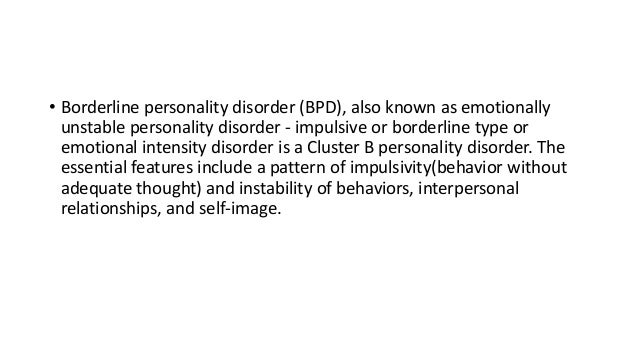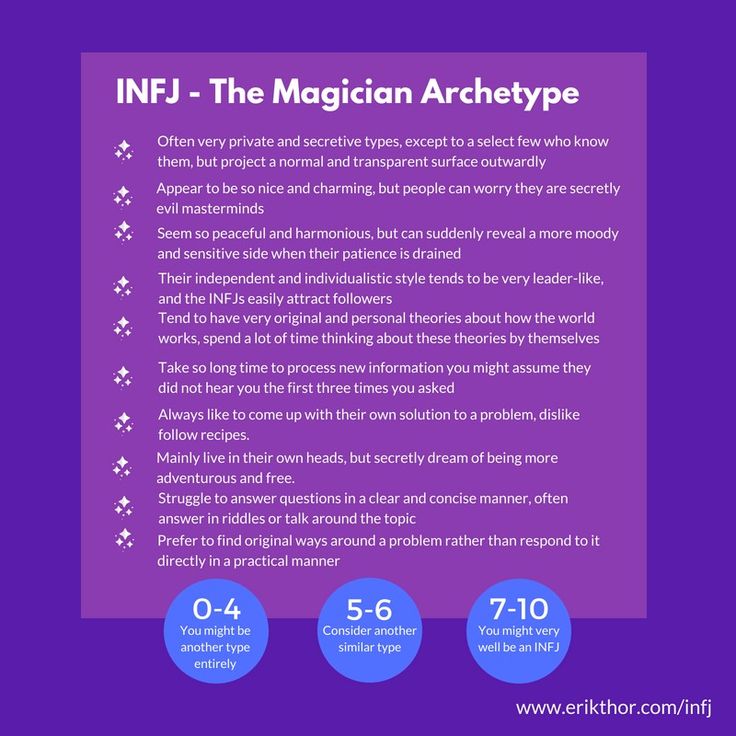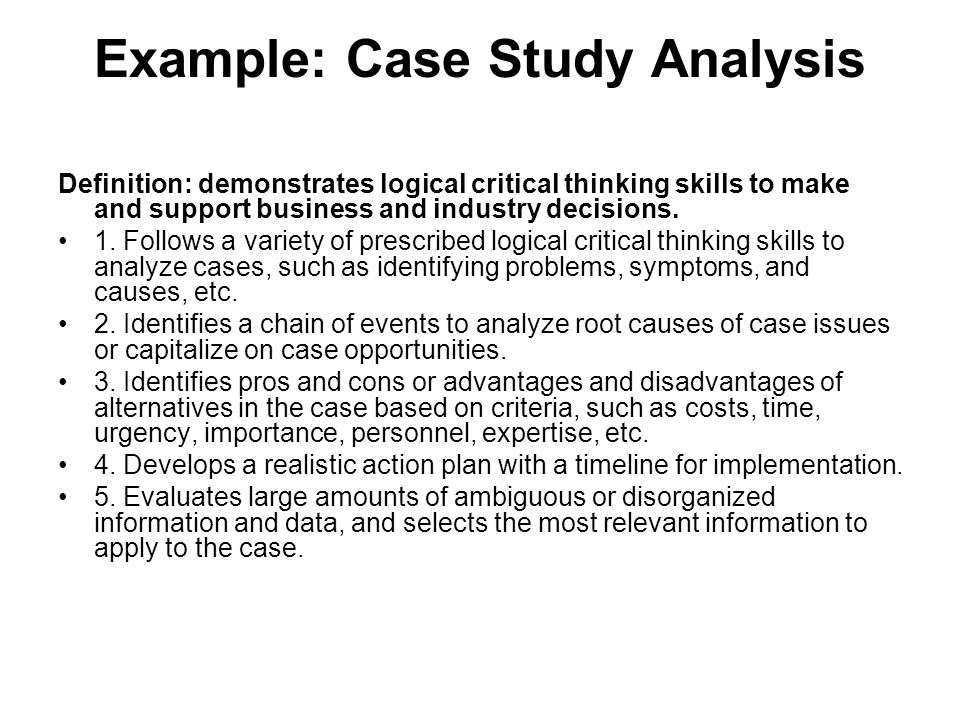People with intp personality type
43 Famous People & Celebrities with INTP Personality Type
There might be affiliate links on this page, which means we get a small commission of anything you buy. As an Amazon Associate we earn from qualifying purchases. Please do your own research before making any online purchase.
The Myers-Briggs Type Personality Indicator (MBTI) is a personality test that was developed by Katherine Briggs and her daughter, Isabel Briggs Myers.
Regarded as one of the most reputable personality tests, MBTI is based on the work Briggs did with Carl Jung, the famous Swiss psychologist, and his personality theories.
With MBTI, there are 16 primary personality types. If you haven't taken the MBTI test, we recommend that you do so. It will help you understand more about yourself and the people around you.
Table of Contents
The INTP Personality Type
The INTP personality type (Introverted iNtuitive Thinking Perceiving) may seem odd to other types because they tend to appear unemotional. Also, INTPs make up about 3% of the total population, so other types have less experience in dealing with this particular type of introverted personality.
INTPs are abstract thinkers, theorists, and scholars whose worlds tend to be inside their own heads. While this can make them appear to be aloof at times, the INTP is actually a person who feels things deeply but processes things differently. In some cases, an INTP may find emotions to be unnerving and irrational.
Because they are logicians, INTPs are most happy when they're dealing with things that are interesting and uncommon.
They are known to be independent and radical thinkers and you can count on INTPs to be problem solvers who are adept at understanding complex ideas and systems.
Here are some more traits of people with the INTP personality type.
- INTPs have lots of ideas, and it's hard to focus on one thing at a time.
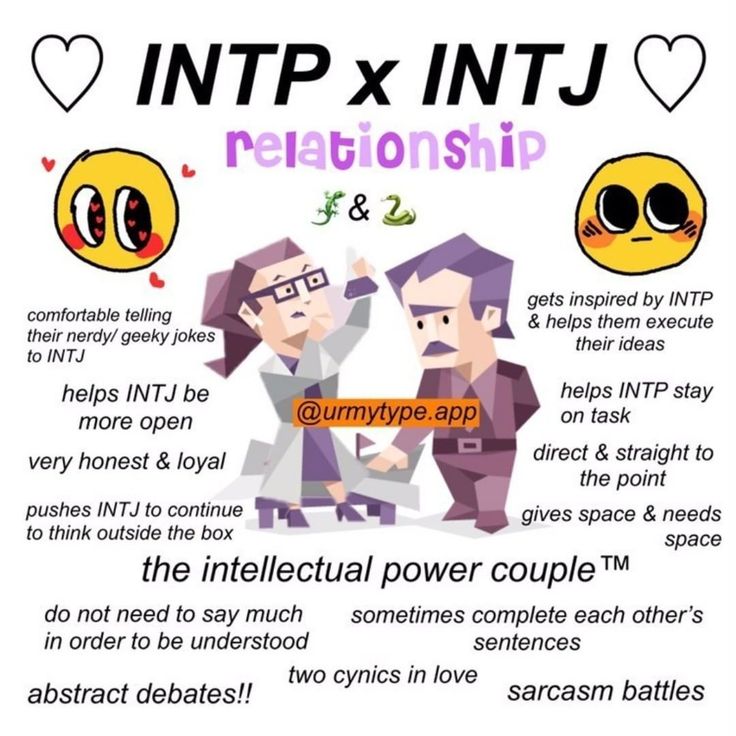
- The real world isn't as important as their inner world and thoughts.
- You may be passive-aggressive at times.
- Ignorance makes an INTP impatient.
- INTPs often come across as the “absent-minded professor.”
- An INTP has encyclopedia-like knowledge about a wide range of topics.
- You are a creature of logic.
- INTPs are valuable because they're great at unlocking solutions to problems.
43 Famous People & Celebrities with INTP Personality Type
Below is a list of some of the most famous people who are INTP personality types.
1. Tina Fey
An American comedian, actress, producer, writer, and playwright, Tina Fey became famous for her role on Saturday Night Live.
Fey got her start in comedy in an improvisational comedy group in Chicago. Later, Fey became well-known for playing a parody role for playing Sarah Palin, half-term Alaska governor and vice-presidential candidate.
2. Bill Gates
Arguably one of the most relevant thought leaders of the modern era, Bill Gates co-founded Microsoft with his fellow INTP Paul Allen, and Gates was the richest man in the world for many years.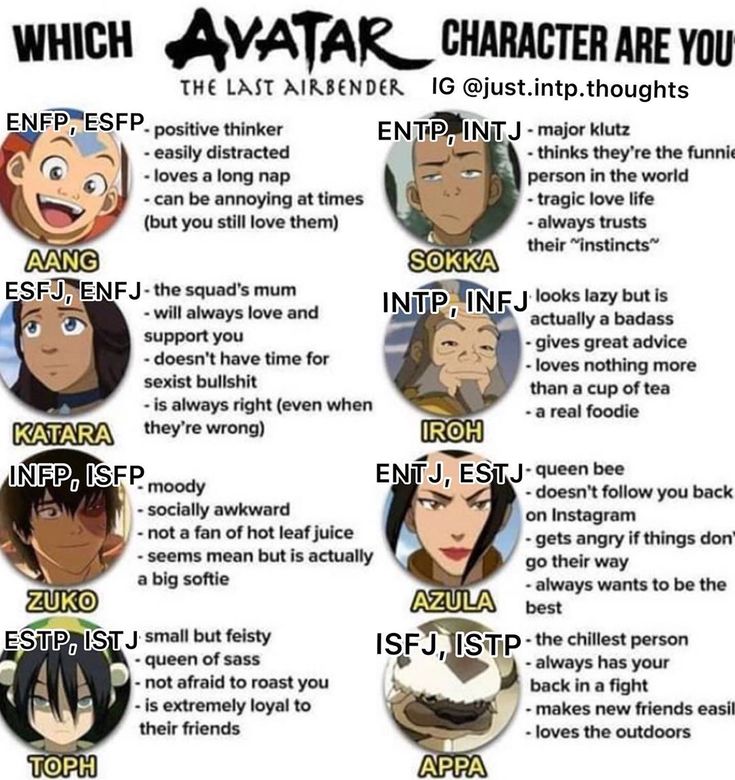
Bill Gates is famous for being a Harvard dropout. His ideas were just too large to be confined by formal education.
3. Albert Einstein
Born in Germany, Albert Einstein narrowly escaped the Nazis when he immigrated to the U.S. Albert Einstein is widely acknowledged as one of the most influential physicists and thinkers of all time.
Einstein is famous for developing the important theory of relativity. However, he made equally important contributions to the quantum mechanics theory.
4. William James
Known as the “father of American psychology,” William James was an American historian, philosopher, and psychologist. In fact, James offered the first psychology course in the U.S.
In addition to serving as the founder of psychology as a formal discipline in the U.S., James also greatly advanced the philosophical pragmatism movement.
5. Abraham Lincoln
Abraham Lincoln was an American statesman and lawyer who was the 16th president of the U. S. Known primarily for his extraordinary leadership during the Civil War in America, Lincoln freed enslaved Americans by signing the Emancipation Proclamation.
S. Known primarily for his extraordinary leadership during the Civil War in America, Lincoln freed enslaved Americans by signing the Emancipation Proclamation.
Born in a log cabin, Lincoln was largely self-educated and famously ready by candlelight to learn as much as possible.
6. Louis Theroux
Louis Theroux is a documentary filmmaker, broadcaster, journalist, author, and podcaster who has received numerous awards for his work. Theroux graduated from Magdalen College in Oxford, then he moved to the U.S. to work as a journalist.
Some of Theroux's most famous work includes “Forbidden America,” a three-part series that focuses on social media usage in the U.S. among alternative groups. Theroux also hosts the podcast “Grounded with Louis Theroux,” where he interviews fascinating famous people.
7. Paul Allen
Paul Allen co-founded Microsoft with Bill Gates in 1975. A childhood friend of Gates, the two worked together to spark the computer revolution of the next two decades.
Allen founded three institutes under his Allen Institutes umbrella: Artificial Intelligence, Brain Science, and Cell Science.
8. Rowan Atkinson
The famous “Mr. Bean” character is played by Rowan Atkinson, an English comedian, actor, and writer. In addition to his role as Mr. Bean, Atkinson has also acted in movies and theatre, including the musical “Oliver!,” “Four Weddings and a Funeral,” and a voice role in 1994's “The Lion King.”
Atkinson uses physical comedy, along with a visually based style that sets him apart from other film comics and modern television comics who rely primarily on dialogue.
9. Marie Curie
The head of Sorbonne's Physics Laboratory, Marie Curie spent her life actively promoting the use of radium for alleviating suffering. Throughout the course of World War I, Curie and her daughter devoted themselves to this cause.
Marie CurieCurie received two Nobel Prizes, one for physics and one for chemistry recognizing her work with radioactivity.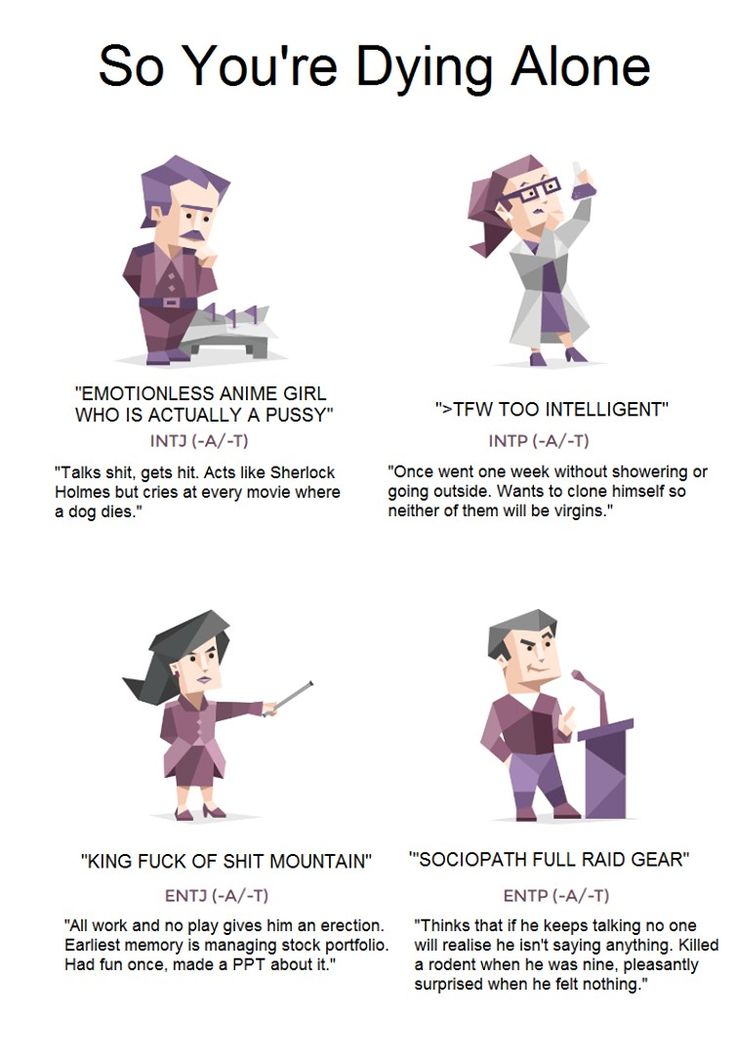
10. Herbert Spencer
If you've heard of social Darwinism, you may be familiar with the work of Herbert Spencer even if you haven't heard his name. The phrase “survival of the fittest” originated with Spencer, and he coined this phrase after reading On the Origin of the Species by Charles Darwin (another INTP).
Spencer was an English anthropologist, biologist, philosopher, and sociologist. In Principles of Biology, Spencer noted that evolution is an integration of concomitant dissipation of motion and integration of matter.
As an INTP, Spencer was uniquely qualified to think through these complex ideas.
11. Christopher Walken
The actor Christopher Walken is one of the most prolific entertainers of our time. A trained dancer and entertainer, Walken has appeared in over 100 television programs and films, including epic movies such as “Annie Hall,” “Catch Me If You Can,” and “The Deer Hunter.”
In his long career, Walken has received several nominations and awards. These include an Academy Award for his role as a best supporting actor in the film “The Deer Hunter.”
These include an Academy Award for his role as a best supporting actor in the film “The Deer Hunter.”
Additionally, Walken has played lead roles in Shakespearean plays such as Romeo and Juliet, Macbeth, and Hamlet.
12. Eckhart Tolle
If you've tapped into the mindfulness movement, you have probably been influenced by Eckhart Tolle even if you didn't realize it at the time.
Tolle is the author of The Power of Now: A Guide to Spiritual Enlightenment, which was a New York Times Best Seller. That book was followed by A New Earth: Awakening to Your Life's Purpose.
Tolle is widely regarded as the most important spiritual author in the U.S., and he is considered to be one of the most influential spiritual thinkers alive.
13. Bill Murray
Famous for his deadpan delivery, Bill Murray is an American comedian and actor. Murray became famous when he appeared on “The National Lampoon” and Saturday Night Life.” He also started in movies such as “Caddyshack,” “Tootsie,” “Ghostbusters,” “Groundhog Day,” and “Lost in Translation.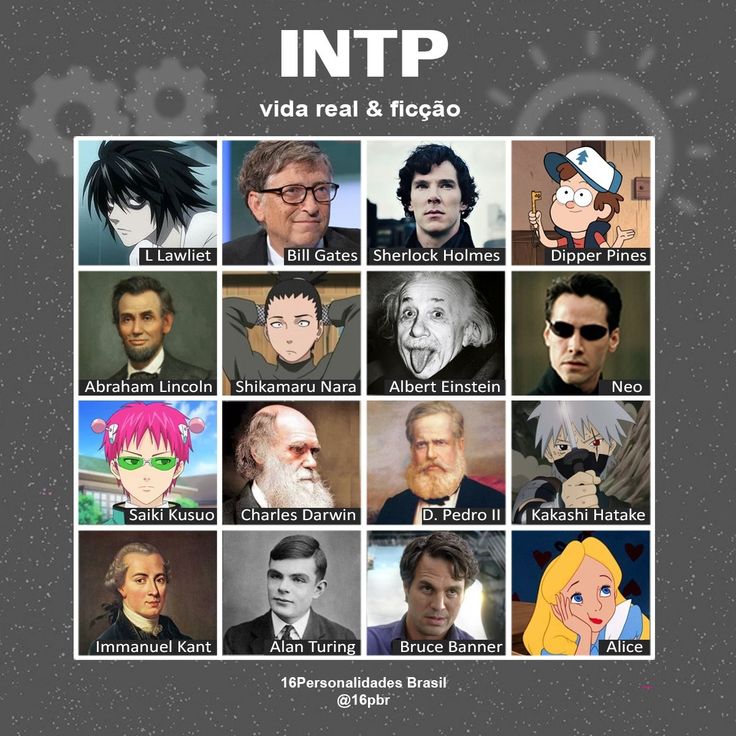 ”
”
Murray has won a Primetime Emmy Award for writing (in a variety series) and he received an Academy Award nomination for his role in “Lost in Translation.”
14. Rene Descartes
The first modern philosopher, Rene Descartes made an important connection as a mathematician between algebra and geometry. Also, he invited analytical geometry.
Descartes made the unusual argument that the mind is more important than the body. He argued that while the mind can exist without the body, a body cannot exist without the mind.
He was also the first philosopher in the rationalism movement, which seeks to understand the world based on reason as the way to attain knowledge.
15. Nikola Tesla
One of the most famous inventors and scientists who have lived in the last 150 years is Nikola Tesla. Tesla is credited with inventing the first AC (alternating current) motor, and he worked to develop transmission and AC generation technology. A Servian-American, Tesla was a futurist, mechanical engineer, and electrical engineer.
Although he never received a formal degree, Tesla was educated in physics and engineering. In the early part of the 1880s, Tesla worked in the electric power industry at Continental Edison and in telephony.
16. Sergey Brin
One of the founders of Google (along with Larry Page), Sergey Brin is a Russian-born American computer scientist, business magnate, and internet entrepreneur.
Brin received early childhood education at a Montessori school, and he received the rest of his education at home. When he was just 19 years old, Brin received his Bachelor of Science in mathematics and computer science.
17. Dustin Hoffman
As one of the most decorated actors in Hollywood, Dustin Hoffman is famous for portraying versatile and emotionally vulnerable characters. Hoffman has won two Academy Awards, four British Academy Film Awards, two Primetime Emmy Awards, and five Golden Globe Awards.
His most famous works have included “Papillon,” “Rain Man,” “Tootsie,” “Kramer vs.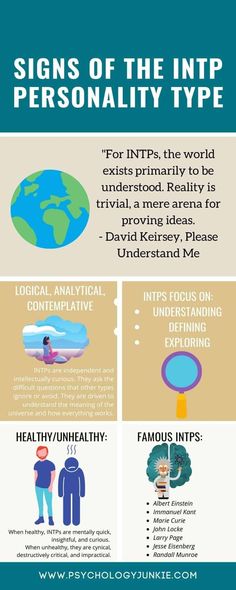 Kramer,” ” All the President's Men,” “The Graduate,” and “Meet the Fockers.” Hoffman plays comedic and dramatic roles equally well.
Kramer,” ” All the President's Men,” “The Graduate,” and “Meet the Fockers.” Hoffman plays comedic and dramatic roles equally well.
18. Cathy Freeman
A former Australian sprinter, Cathy Freeman specialized in the 400 meters event and is currently the 9th fastest woman of all time. Freeman is widely regarded as a notable hero because she is the first Aboriginal sprinter to ever win a Commonwealth Games gold medal.
Freeman also participated in the 1992 and 1996 Olympic games. In 1996, she won the silver medal for her event. Freeman is famous for wearing a bodysuit to cover every part of her body. She says that it prevents “drag” that slows her down.
19. John Cusack
The actor John Cusack is also famous for being a political activist, screenwriter, and producer. Cusack's mother was a mathematics teacher and this greatly influenced young John's analytical thinking skills.
As a member of the Democratic Socialists political party, Cusack supported Sen.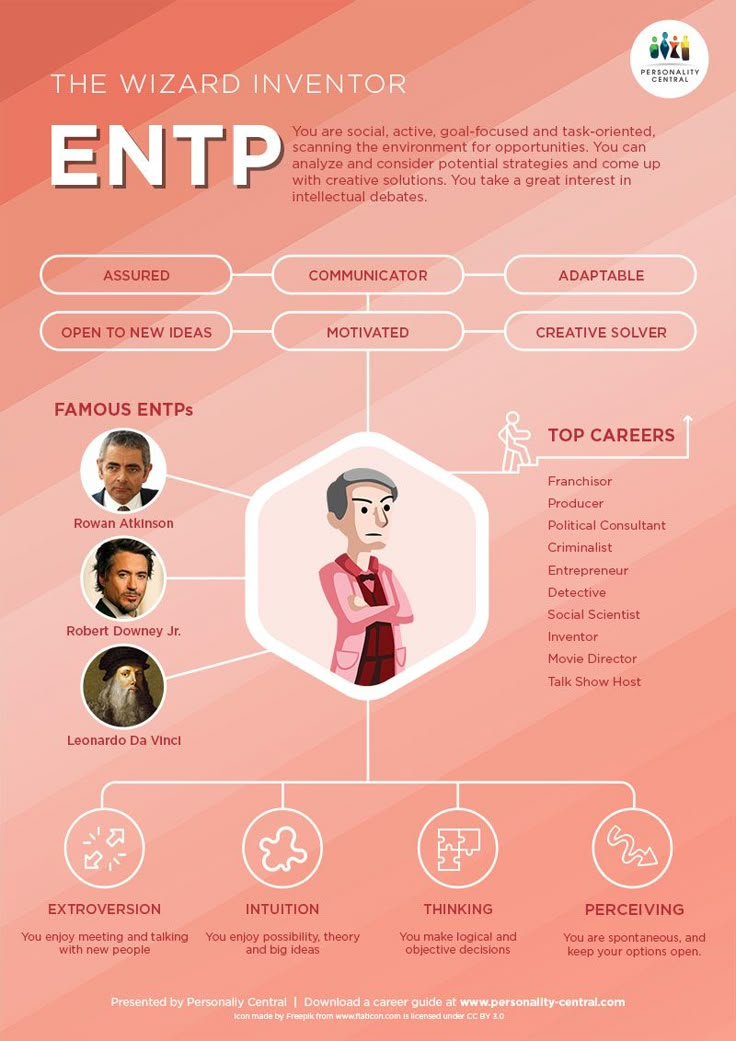 Bernie Sanders in his bid for the presidency.
Bernie Sanders in his bid for the presidency.
Cusack has widely criticized other presidential administrations because of their use of drone technology. He has also shown support for government whistleblowers such as Edward Snowden.
20. Art Monk
James Arthur Monk has played the position of wide receiver for the Washington Redskins, Philadelphia Eagles, and New York Jets in the National Football League (NFL). Monk has worked outside of the sports world to help troubled youth with learning skills that will help them succeed in society.
Monk's program works with high school students with mentoring, tutoring, and after-school programs.
21. Kristen Stewart
In 2012, Kristen Stewart was the highest-paid actress in the world. She has received a British Academy Film Award and nominations for both a Golden Globe Award and an Academy Award.
Early in her career, Stewart wanted to be a writer or director, but she ended up being an acclaimed actor. She is famous for her role in “The Twilight Saga” films.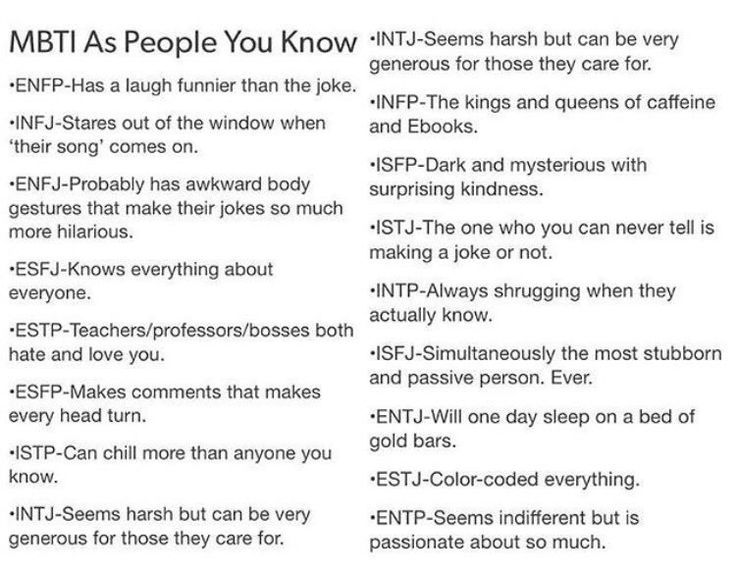 She also played Diana, Princess of Wales, in a biographical drama “Spencer” that earned her an Academy Award nomination and widespread critical acclaim.
She also played Diana, Princess of Wales, in a biographical drama “Spencer” that earned her an Academy Award nomination and widespread critical acclaim.
22. Larry Page
The second Google founder, Larry Page is an American internet entrepreneur and computer scientist. Like Brin, Larry Page attended a Montessori school. Later, he earned his master's degree in computer science from Stanford University.
Page first started exploring computers when he was only six years old.
23. Tiger Woods
When he was just 20 years old, Tiger Woods became a professional golfer. By the end of his 21st year, Woods had already won three PGA Tours and the 1997 Masters. In 1997, Woods became the number one golfer in world rankings just a year after he became a professional.
Tiger Woods became a child prodigy when his dad introduced him to golf when he was just two years old. Through the Tiger Wood Foundation, Woods has been empowering youth for 25 years through education, support, and tools that help them discover their interests and enhance their knowledge.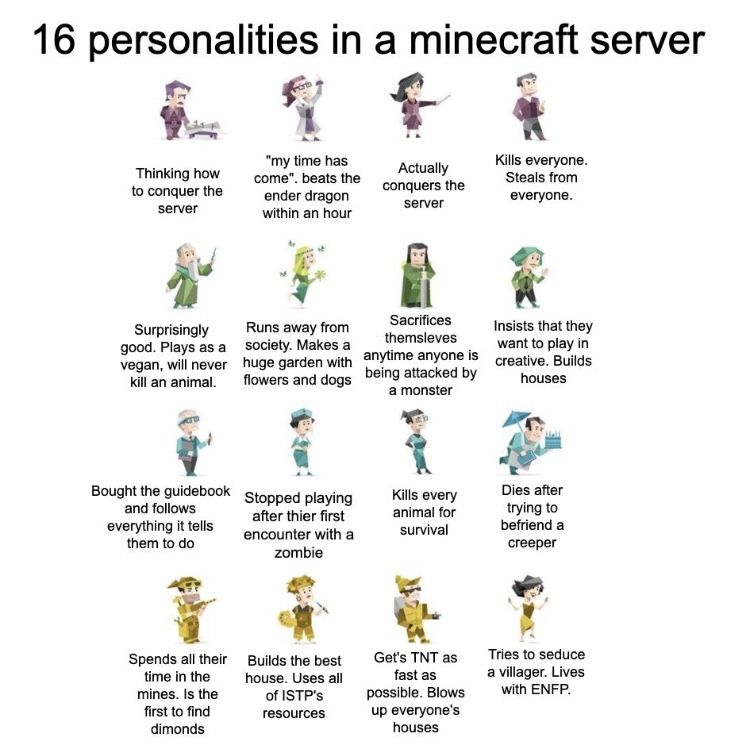
24. Charles Darwin
The theory of Natural Selection was first explored by a naturalist named Charles Darwin. This theory explains how species may experience the changing of genetic traits over time. Darwin believed that these changes can lead to speciation, which is essentially the formation of new species.
Charles DarwinAt university, he studied medical education, natural science, and marine invertebrates. Darwin is regarded as one of humanity's most influential figures.
25. John le Carre
David John Moore Cornwell is best known by his pen name of John le Carre. He was a British author who wrote spy novels, and he also worked for the British intelligence agency known as M16.
His best-known work is The Spy Who Came in from the Cold, published in 1963.
26. Gerald Ford
Gerald Ford was the 38th president of the United States, and he is most famous for pardoning his predecessor, Richard Nixon. Ford was a football player at the University of Michigan, and he turned down offers to play professional football so that he could attend Yale Law School.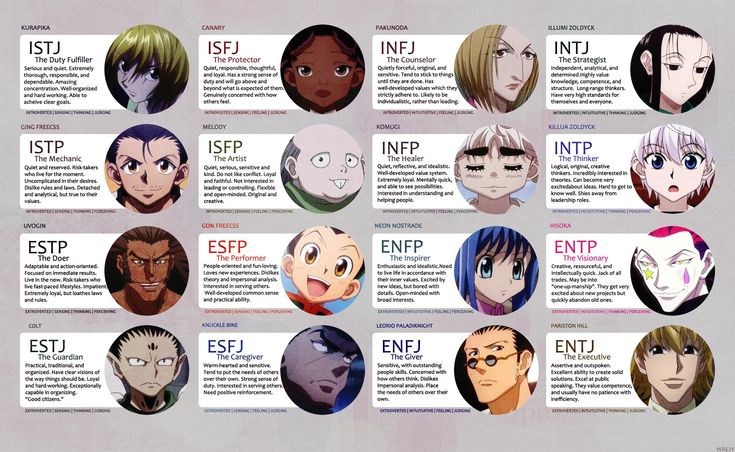
After Pearl Harbor was attacked, Ford enlisted in the Naval Reserve and was a lieutenant commander when he left. In his political career, he was a U.S. representative for Michigan for nearly 25 years, where he served as the House minority leader for nine years.
27. Yoshihiro Tagashi
The only manga artist on our list is Yoshihiro Tagashi, who started drawing mange at a young age. The artist has authored manga series for three decades in different manga genres.
Tagashi's YuYu Hakusho and Hunter x Hunter are some of history's best-selling manga.
28. Liam Gallagher
An English songwriter and singer, Liam Gallagher first became famous for his role as the lead vocalist of Oasis, a rock band that was active from 1991 through 2009.
Gallagher was largely inspired by John Lennon.
29. James Madison
The 4th president of the United States, James Madison is considered to be the “Father of the Constitution” because he played a pivotal role in promoting and drafting the U.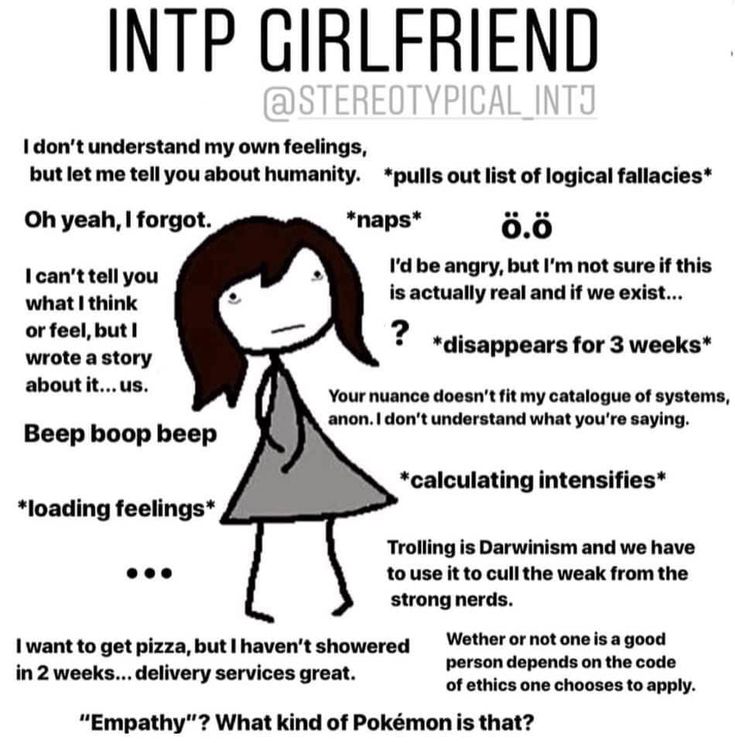 S. Constitution and Bill of Rights.
S. Constitution and Bill of Rights.
Madison also wrote The Federalist Papers with John Jay and Alexander Hamilton.
30. Alan Greenspan
From 1987 through 2006, Alan Greenspan served as the Federal Reserve chair under presidents Ronald Reagan and George W. Bush. While he was criticized by Democrats in Congress for his support of privatizing Social Security and tax cuts, other observers refer to Greenspan as a kind of “rock star.”
Greenspan attended the Julliard School as a woodwinds player in the 1940s. Later, he received an economics degree from New York University, as well as an M.A. degree in economics.
31. Henry Mancini
The late Henry Mancini was an American pianist, flutist, conductor, composer, and musical arranger. Mancini is considered to be one of the greatest composers in cinema history.
Mancini won a Golden Globe award, four Academy Awards, and a Grammy Lifetime Achievement Award (posthumously).
32. Dikembe Mutombo
Born in the Democratic Republic of Congo, Dikembe Mutombo was one of 10 children.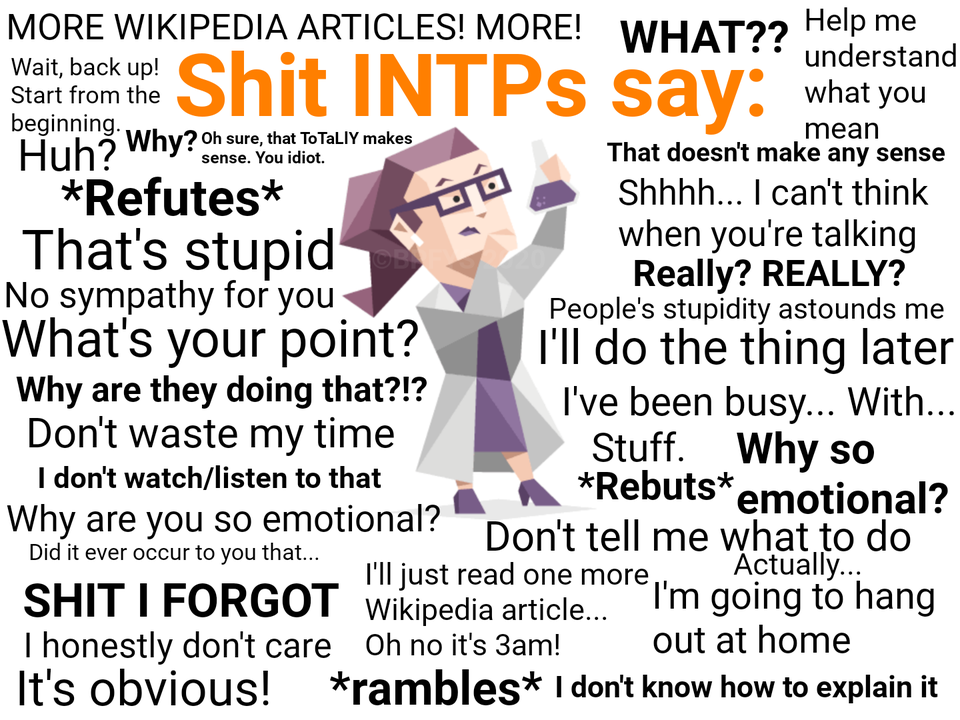 Mutombo speaks nine languages, including five Central African languages, Spanish, French, English, and Portuguese.
Mutombo speaks nine languages, including five Central African languages, Spanish, French, English, and Portuguese.
In 1987, he moved to the U.S. to go to college and play professional basketball. He served in internships for World Bank and the U.S. Congress. He has bachelor's degrees in diplomacy and linguistics.
33. John Tyler
John Tyler was the 10th president of the U.S. and became president upon the death of Pres. William Henry Harrison.
Before becoming president, Tyler served in the U.S. House of Representatives.
34. Thucydides
One of the world's greatest ancient historians, Thucydides wrote History of the Peloponnesian War, an extensive history of the 30 years of tension and war between Sparta and Athens.
Thucydides was a military general and an Athenia historian, and many historians call him the “father of scientific history” because of his practice of applying strict impartiality standards in evidence analyzing and gathering.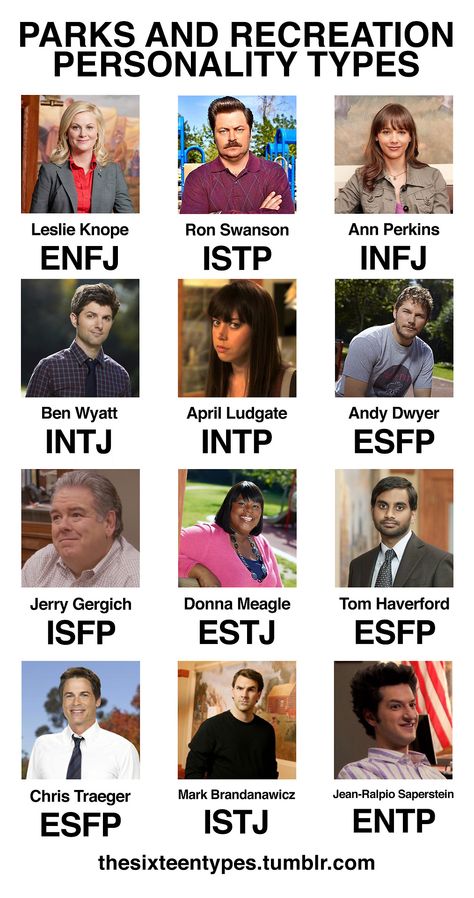
Thucydides has also been referred to as the father of the political realism school, which views individual political behavior as ultimately mediated by self-interest and fear.
35. Meryl Streep
The actress Meryl Streep is one of the most decorated actors of all time. She has won a total of 204 awards, and she has been nominated for awards 407 times.
Streep has been nominated for EGOT status, which means she has been nominated for an Emmy Award, a Grammy Award, an Academy Award, and a Tony Award.
36. Dwight D. Eisenhower
A prominent military leader and statesman, Dwight David Eisenhower was also the 34th president of the United States. During World War II, Eisenhower was the Supreme Commander of the Allied Forces in a war-torn Europe. In that role, he achieved the rank of five-star general.
Besides being a famous general and U.S. president, Dwight D. Eisenhower is famous for developing the Eisenhower Matrix. The Eisenhower Matrix is a prioritization, productivity, and time-management framework that is designed to help people prioritize agenda items or tasks by categorizing tasks according to importance and urgency.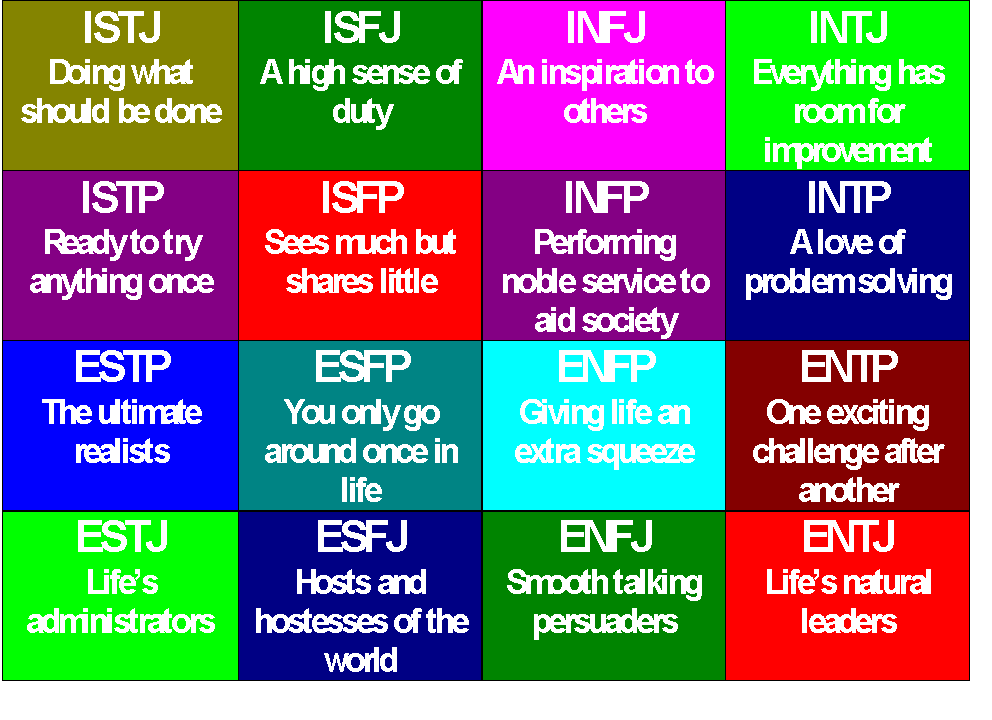
37. Amanda Seyfried
Seyfried started her acting career when she was 15 years old. Her early roles were in soap operas, and she became famous after appearing in the 2004 movie “Mean Girls.”
Her movie roles include “Les Miserables,” “Dear John,” and “Mank.” Her role in “Mank” earned her nominations for both a Golden Globe Award and an Academy Award.
In 2022, Time Magazine named Seyfried as one of the world's most influential people.
38. Thomas Aquinas
Many philosophers consider Thomas Aquinas to be the greatest Scholastic philosopher because he wrote a comprehensive synthesis of Aristotelian philosophy and Christian theology that hugely influenced the doctrine of Roman Catholicism.
Aquinas was an Italian priest and Dominican friar and the founder of Scholasticism.
Aquinas was unique in that he argued that God serves as the source of both the light of faith and the light of natural reason. He was considered to be one of the medieval period's most influential thinkers.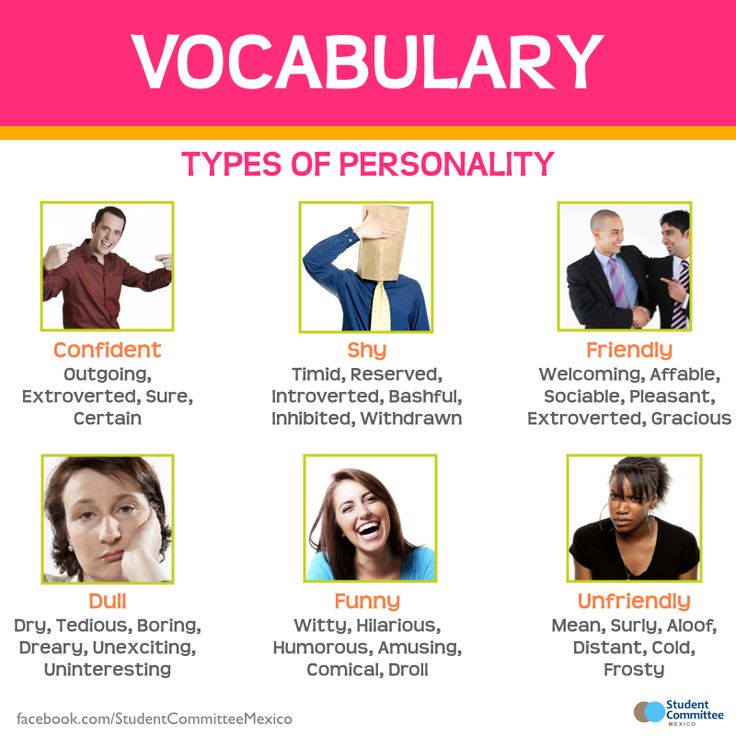
39. John Quincy Adams
John Quincy Adams was the sixth president of the United States. Adams was a famous American statesman, as well as an attorney, diplomat, and diarist.
John Quincy AdamsAdams is famous for arranging joint occupation of the Oregon country with England, formulating the Monroe Doctrine, and buying Florida from Spain.
40. Edward Snowden
When Edward Snowden was working as a contracted computer intelligence consultant, he was horrified to learn how extensively the U.S. government was spying on Americans through the National Security Agency (NSA).
Snowden disclosed several global surveillance programs and prompted an important discussion about individual privacy and national security.
In June of 2013, Snowden released thousands of classified documents to journalists and is considered to be one of the most important government whistleblowers of all time. Snowden has been called a hero, a traitor, a patriot, and a dissident.
41.
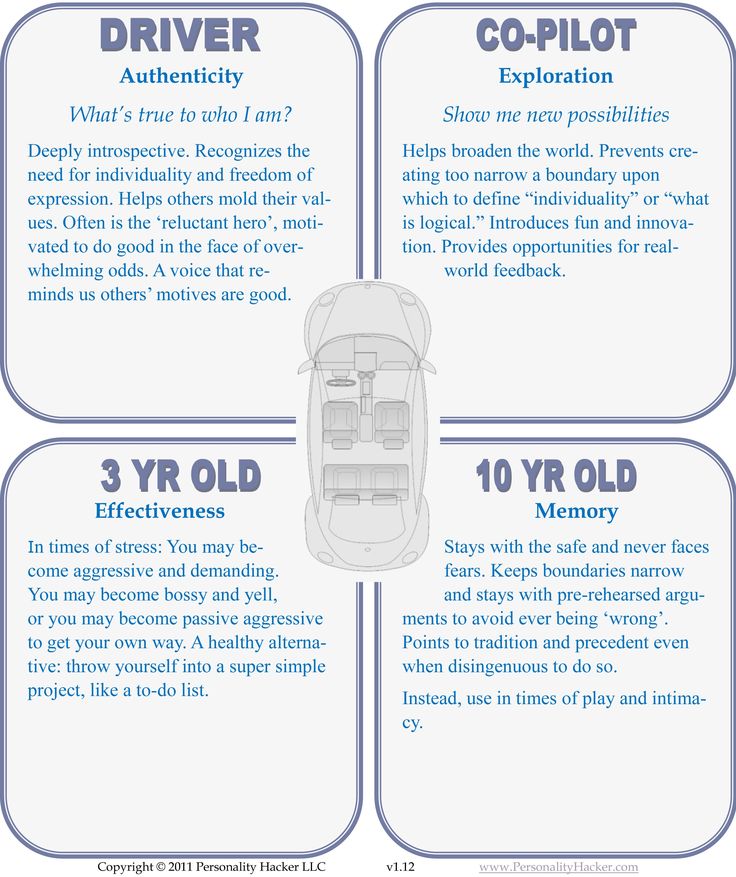 Robert A. Heinlein
Robert A. HeinleinRobert Heinlein was an aeronautical engineer, American science fiction author, and naval officer.
Heinlein has the distinction of being one of the first authors to emphasize scientific accuracy in his writing, so he is essentially the father of the hard science fiction genre.
42. T.S. Eliot
T.S. Eliot is one of the most renowned poets of the 20th century and played a central role in Modernist poetry.
Eliot also worked at Harvard as a philosophy student.
43. Stephen King
An American author, Stephen King is one of the most prolific and successful authors of horror novels of all time. King writes in a variety of genres, including crime, suspense, supernatural fiction, horror, fantasy, and science fiction.
King has won several awards, including the World Fantasy Award, Bram Stoker Award, and British Fantasy Society Award. He has also been awarded the U.S. National Endowment for the Arts' National Medal of Arts for his contributions to literature.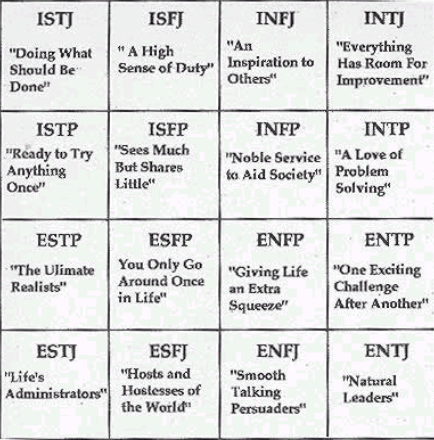
Many of his books have been made into movies and TV shows, and his most popular works are “The Shining,” “Carrie,” “Cujo,” and “The Shawshank Redemption.” King is also an avid political activist in his home state of Maine.
Final Thoughts on INTP Famous People
If you are an INTP, you're a gift to the world. Your problem-solving skills and big-idea thinking have the potential to make big changes in the world around you. Or maybe you suspect you have an INTP in your life and want to understand them better.
Just know that an INTP is introverted and they need lots of time to get lost inside their head. After all, that's where their big ideas live, and you never know what they're going to add to the world and to your life.
Famous INTPs have made contributions to the world that have changed everything around us in positive ways.
To learn more about the MBTI test, and all of the personalities you have yet to explore, check out our Myers-Briggs 16 Personality Types: A Beginner’s Guide.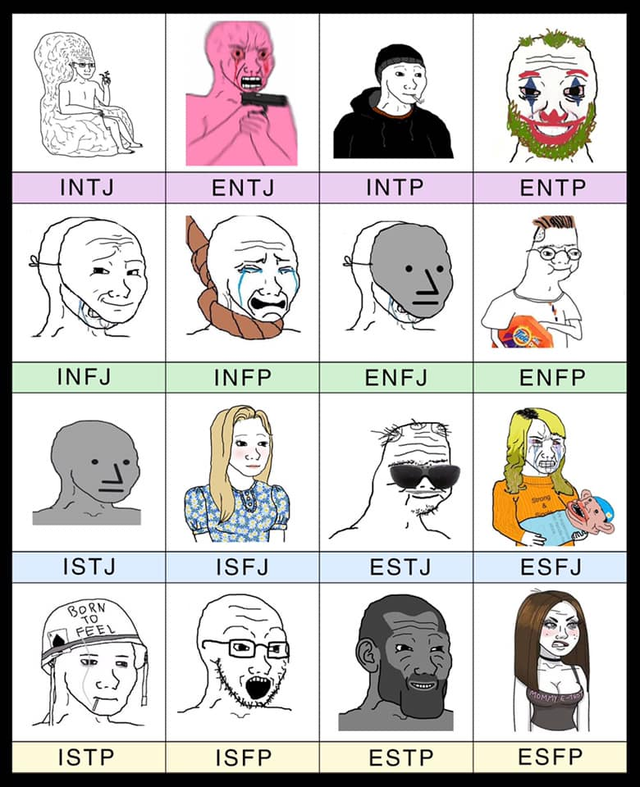
Finally, if you want to identify YOUR personality type, then take one of these 11 personality tests to better understand what makes you tick.
Epic List of Famous People With INTP Personality
INTP (introverted inntuitive thinking perceiving) is one of the sixteen personality types defined by the Myers-Briggs Type Indicator (MBTI) test. INTPs are a relatively rare type, making up about 4% of the population.
INTPs are creatures of logic. Calm, controlled, and studious, INTPs are driven by the search for reason. For INTPs, the principles behind anything can be figured out given enough time. In fact, INTPs often get caught up on thinking for its own sake; the stereotypical figure of the “absent-minded scientist” is based on INTP behavior.
It can be an effort for INTPs to remain grounded and relate their thinking to the real world, and others can see them as distant and unemotional. But the pure rationality that an INTP brings is a powerful tool for unlocking problems when it’s applied properly.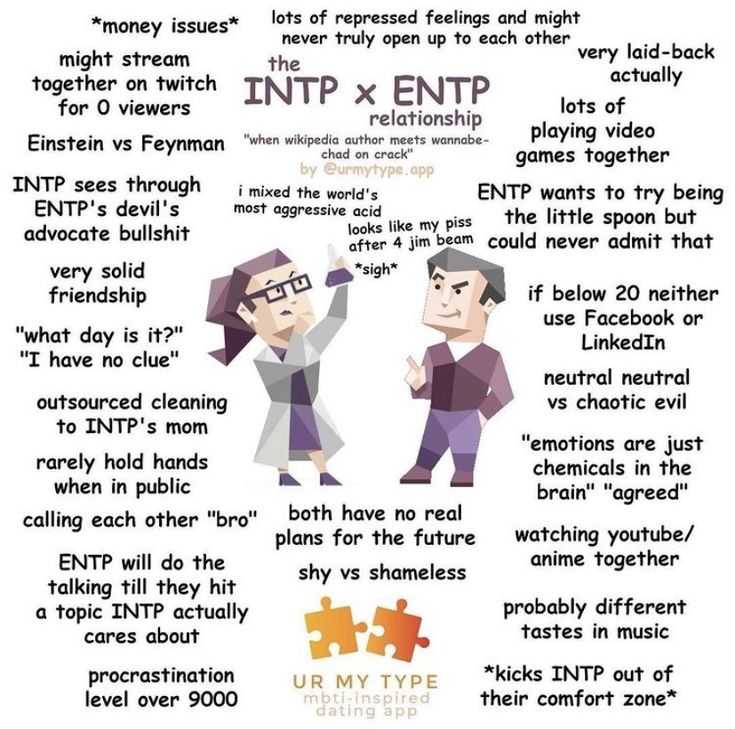
Here are some famous people who fit the INTP personality type.
SCIENTISTS
Albert Einstein src
Charles Darwin src
William Harvey src
INTPs are naturally drawn to scientific fields, where their intellectual gifts are most useful.
- Albert Einstein, German physicist. source
- Charles Darwin, English naturalist. source
- Marie Curie, Polish physicist and chemist. source
- William Harvey, English physician. source
- William James, American psychologist. source
PHILOSPHERS
Friedrich Hayek src
Rene Descartes src
Adam Smith src
Other INTPs are drawn to philosophy, seeking broader universal principles.
- Immanuel Kant, German philosopher. source
- Hannah Arendt, German-American political theorist. source
- Adam Smith, Scottish economist.
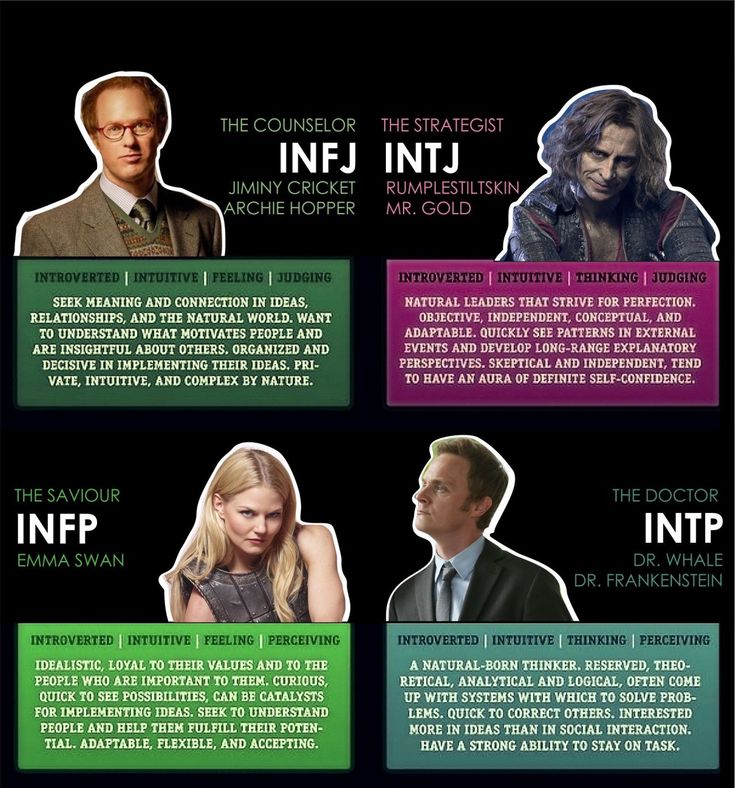 source
source - Herbert Spencer, English philosopher. source
- Friedrich Hayek, Austrian economist. source
- Blaise Pascal, French philosopher. source
- Eckhart Tolle, German-Canadian spiritualist. source
- Rene Descartes, French philosopher. source
- Thomas Aquinas, Italian priest and theologian. source
ATHLETES
Dikembe Mutombo src
Art Monk src
Cathy Freeman src
INTPs are not common in the athletic field, since they prefer intellectual activities, but some INTPs do use their minds to aid them in competition.
- Dikembe Mutombo, Congolese center. source
- Art Monk, U.S. wide receiver. source
- Cathy Freeman, Australian sprinter. source
POLITICIANS & WORLD LEADERS
Abraham Lincoln src
Alan Greenspan src
George Soros src
Some INTPs apply their analytical abilities to the problems of politics.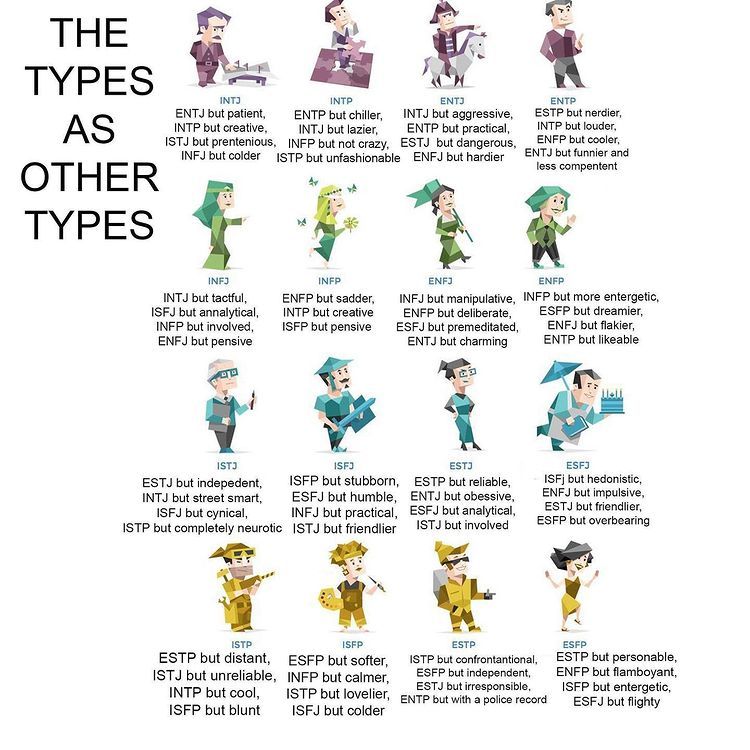
- Abraham Lincoln, U.S. President. source
- James Madison, U.S. President. source
- John Quincy Adams, U.S. President. source
- John Tyler, U.S. President. source
- Gerald Ford, U.S. President. source
- Alan Greenspan, U.S. Federal Reserve chairman. source
- George Soros, Hungarian-American hedge fund manager and political activist. source
- Edward Snowden, U.S. whistleblower. source
AUTHORS
Robert Heinlein src
Thucydides src
Harper Lee src
INTPs are also attracted to writing, another intellectual pursuit.
- Harper Lee, U.S. novelist. source
- John le Carre, English novelist. source
- Stanley Crouch, U.S. poet and jazz musician. source
- Thucydides, Greek historian.
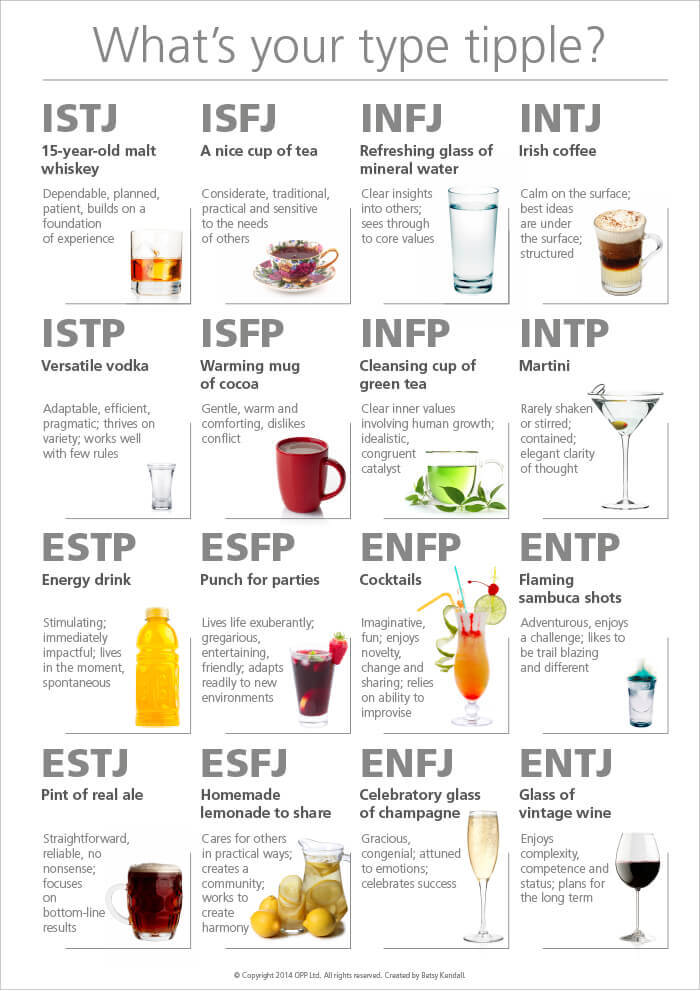 source
source - Randall Munroe, U.S. cartoonist. source
- Robert A. Heinlein, U.S. author. source
MUSICIANS
M.I.A. src
Liam Gallagher src
Mark Mothersbaugh src
INTP musicians are not pack-followers. They’re not afraid to experiment, innovate, and take risks.
- Liam Gallagher, English singer. source
- Henry Mancini, U.S. composer. source
- Neil Peart, Canadian drummer. source
- Mark Mothersbaugh, U.S. musician. source
- Glenn Gould, Canadian pianist. source
- Bob Moog, U.S. inventor of the Moog synthesizer. source
- Aphex Twin, Irish electronic musician. source
- M.I.A., English hip-hop artist. source
BUSINESS
Larry Page src
Paul Allen src
Many of the biggest names in Silicon Valley innovation today are INTPs.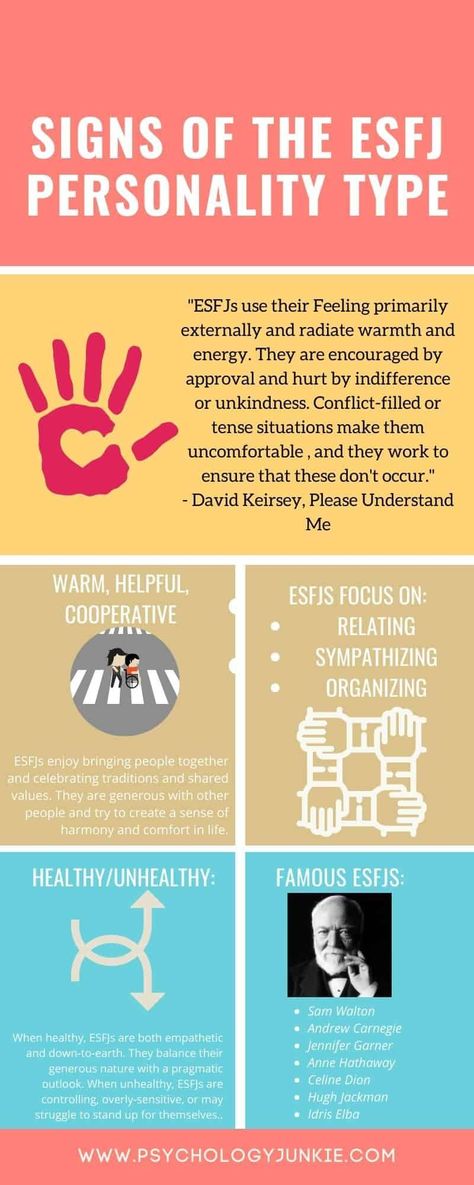
- Paul Allen, U.S. cofounder of Microsoft. source
- Larry Page, U.S. cofounder of Google. source
ARTISTS & ENTERTAINERS
Tina Fey src
Dustin Hoffman src
Elliot Page src
Being logical doesn’t mean INTPs can’t also be witty and amusing — or intense and dramatic.
- Tina Fey, U.S. actress. source
- Dustin Hoffman, U.S. actor. source
- Sigourney Weaver, U.S. actress. source
- Geoffrey Rush, Australian actor. source
- Gabriel Byrne, Irish actor. source
- Rick Moranis, Canadian actor and screenwriter. source
- John Cusack, U.S. actor. source
- Bob Newhart, U.S. comedian and actor. source
- Gregory Peck, U.S. actor. source
- Andy Richter, U.S. comedian. source
- Elliot Page, Canadian actor.
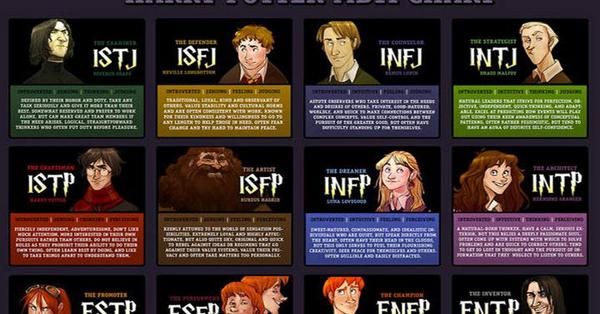 source
source - Amy Smart, U.S. actress. source
- David Cronenberg, U.S. director. source
- Kate Moss, English model. source
- Ben Stein, U.S. economist, television pundit, and actor. source
- Diane Lane, U.S. actress. source
- Mary-Kate and Ashley Olsen, U.S. actresses and designers. source
- Asia Carrera, U.S. actress. source
- Kristen Stewart, U.S. actress. source
- Jesse Eisenberg, U.S. actor. source
FICTIONAL CHARACTERS
Sheldon Cooper src
Yoda src
Hermione Granger src
Finally, here are some people from the worlds of fiction who display INTP characteristics.
- Sheldon Cooper from The Big Bang Theory. source
- Gandalf from The Lord of the Rings. source
- Death from Terry Pratchett’s Discworld books.
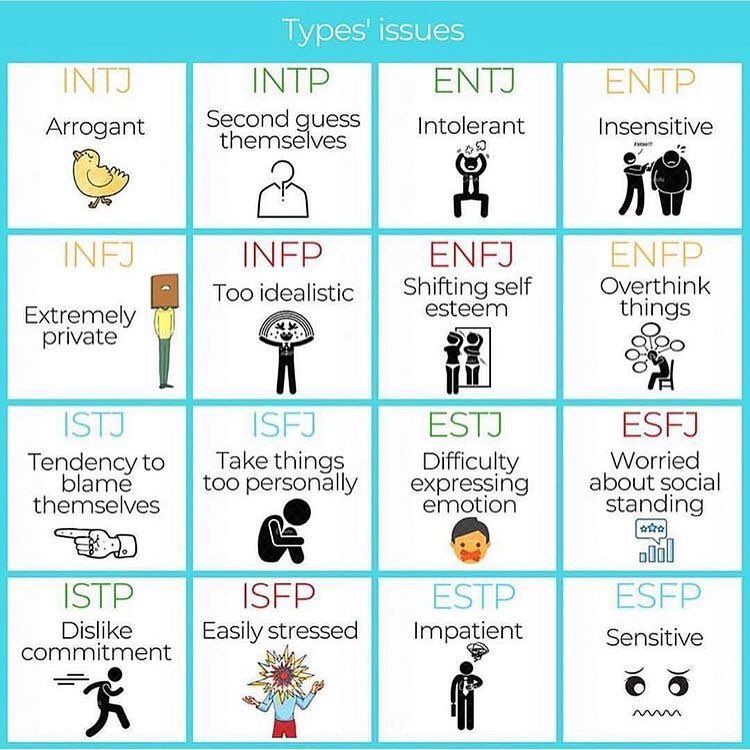 source
source - Hermione Granger from Harry Potter. source
- Bruce Banner, alter-ego of the Incredible Hulk. source
- Tom Branson from Downton Abbey. source
- Ian Malcolm from Jurassic Park. source
- Violet Baudelaire from the A Series of Unfortunate Events books. source
- Yoda from Star Wars. source
- Velma Dinkley from Scooby-Doo. source
- Eugene Porter from The Walking Dead. source
- Neo from The Matrix. source
- Maester Luwin from Game of Thrones. source
- The 9th Doctor from Doctor Who. source
- Haymitch Abernathy from The Hunger Games. source
- Dr. Bunsen Honeydew from The Muppets.
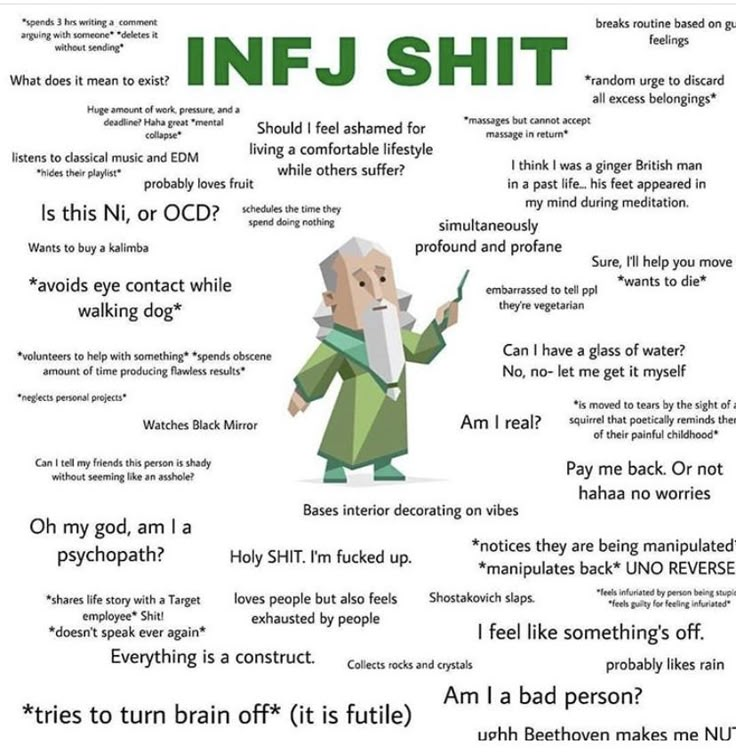 source
source - Dr. Gero from Dragonball Z. source
- Brian Johnson from The Breakfast Club. source
- George McFly from Back to the Future. source
INTP Innovator | Identity Code
Are you an INTP? Complete the 4 key steps to get the most out of knowing your Identity Code
You passed the test on the site or somehow found out that you are an INTP.
The INTP type is also called the Scientist.
You are here now. Study this page carefully and decide if the description sounds like you.
Double-check the type at the end of the page if there is any doubt that this is your personality type.
Make the most of 's knowledge of the Personality Code for the 16 areas of life with the INTP Innovator's Guide.
INTP is a person who:
- I (introversion) - focused on the inner world (introvert)
- N (intuition) - likes to work with ideas and abstractions
- T (thinking) - operates with logic in acceptance decisions
- P (perception) - prefers freedom and unpredictability.
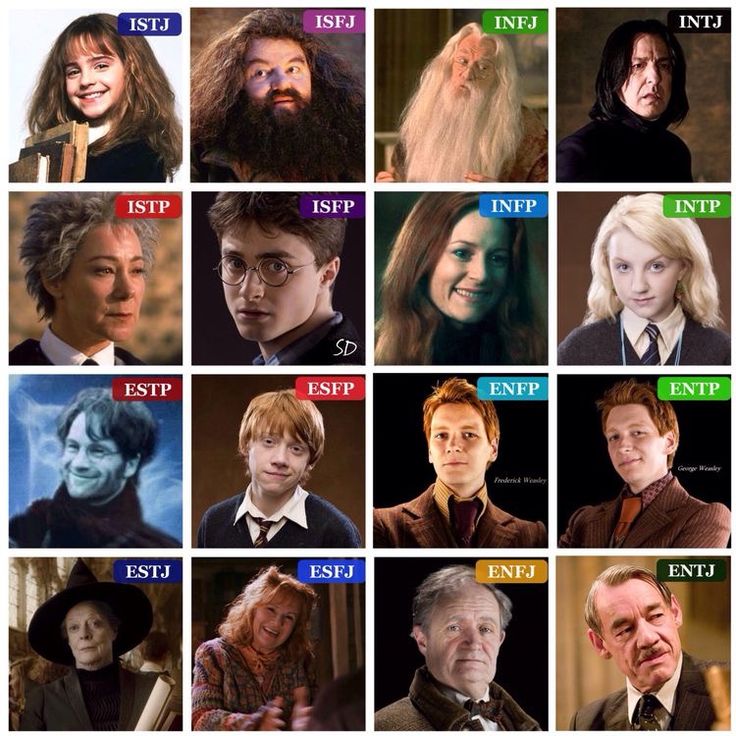
In Russian corresponds to the type of intuitive logic introvert irrational.
People of the INTP type are often called Innovators for their well-developed imagination and associative thinking. Most of the time they are immersed in their inner world, where their mind is constantly analyzing complex problems, identifying patterns and coming up with a logical explanation for everything that happens in the outside world. They believe that everything they see can be analyzed and improved by combining into patterns and creating complex systems. For INTP, the world exists only to be analyzed.
The surrounding reality for the Innovator is the sphere of application of their brilliant ideas and solutions. Having become interested in a problem, they will not stop until they study it from all sides and find an ingenious way to solve it.
According to the statistics of people with the INTP type in the world:
- 3% of the total population
- 5% of men
- 2% of women
16 personality types that don't make it to this site.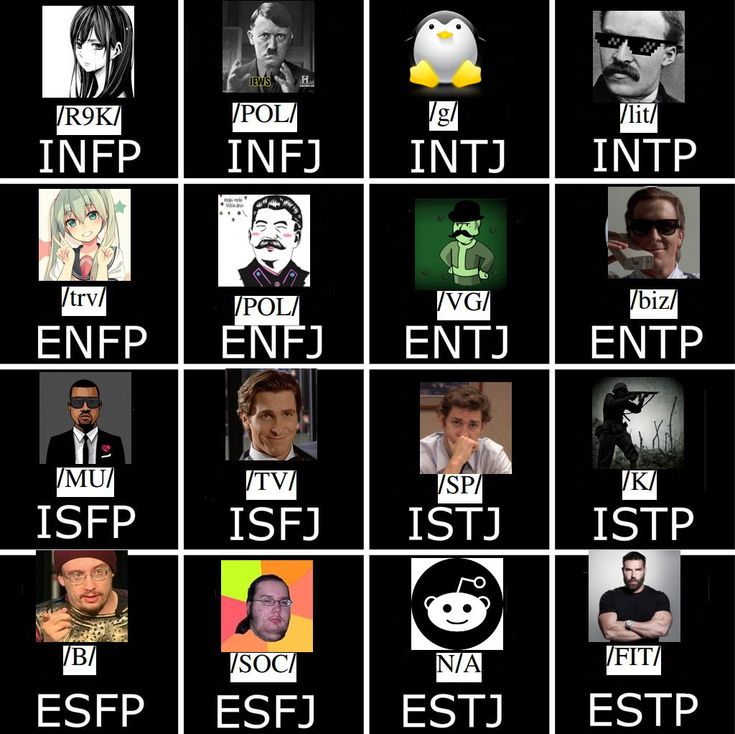 Subscribe to know everything about yourself and people around!
Subscribe to know everything about yourself and people around!
People with this personality type tend not to accept authority based on tradition or public opinion. They have their own judgment regarding all aspects of life. People with this personality type do not take into account assumptions and conventions. Only facts based on logic and evidence have weight for them. They are logical, and all important decisions are made on the basis of objective information, and not subjective feelings.
Innovators consider any existing theory from the point of view of the possibility of proof or refutation. They sincerely do not understand people who are committed to ideas that do not have a logical foundation. Other people are often delighted, but also discouraged, by the adherence of Innovators to their views.
Among well -known personalities of this type:
- Steve Jobs
- Albert Einstein
- Maria Curi
- Thomas Jefferson
- DECARY ABORAMS AURAMS
- High standards.
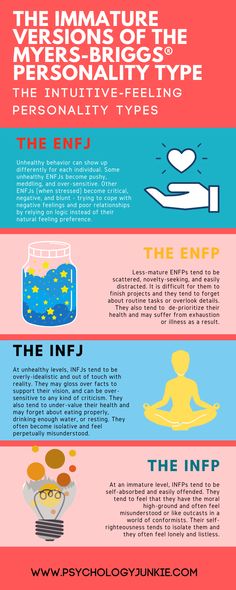 Innovators are extremely demanding of themselves. They set high standards and strive to exceed them. High demands of INTP allow them to create high quality products.
Innovators are extremely demanding of themselves. They set high standards and strive to exceed them. High demands of INTP allow them to create high quality products.
- Vision of the future. Strong strategists. They are focused on future opportunities, are well versed in innovations and technologies, and find solutions for their practical application.
- Flexibility. Innovators successfully work on several projects at the same time. They like to set their own deadlines and be independent, without strict control from above.
- Analytical thinking. People with this personality type have excellent analytical abilities and always find the best way to complete a task.
- Creativity and innovation. Innovators are able to connect disparate parts together and see what is hidden from the eyes of others. They are the first to notice good opportunities and what can make a breakthrough in technology and innovation.
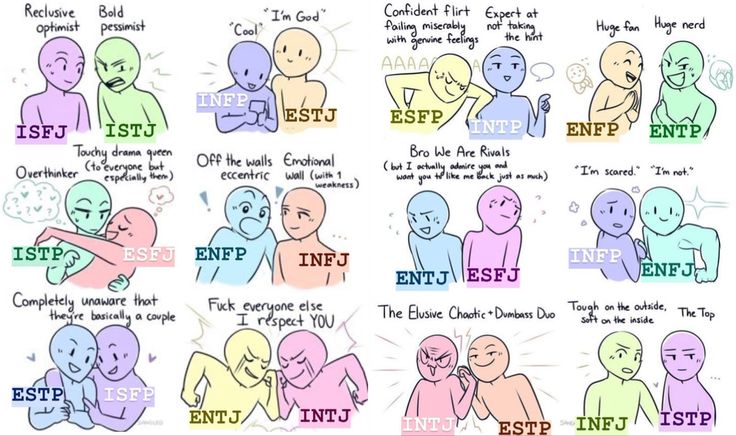
- Let your friends and loved ones help you in anything and take care of you. Understand that they sometimes need it and they enjoy it,
- Give less advice to others, less often criticize them.
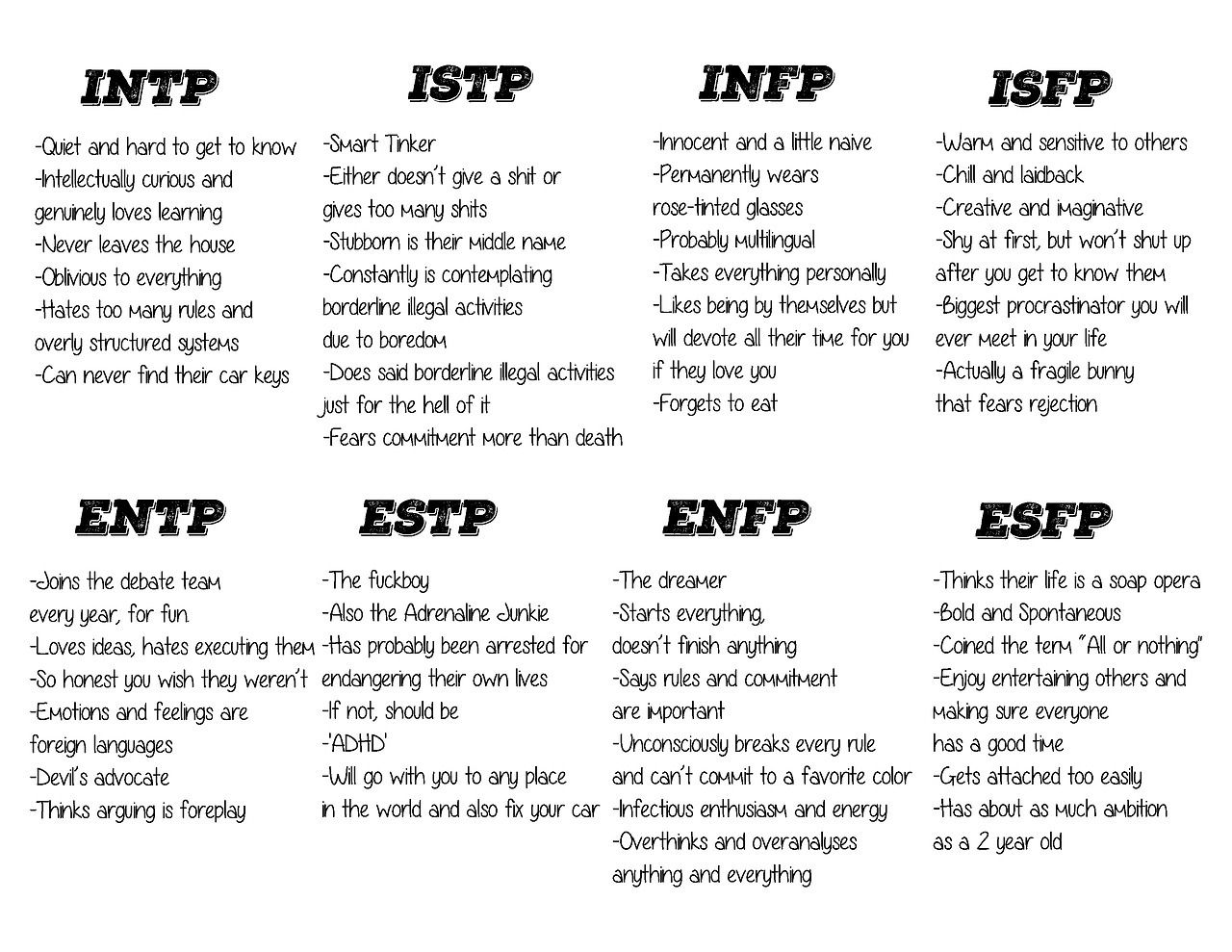 Your reactions may be unpleasant to them, and sometimes even hurt them,
Your reactions may be unpleasant to them, and sometimes even hurt them, - Try to tell your relatives about your problems and moments that you are not able to solve on your own. They can’t guess about your feelings and thoughts, but they can really help you a lot sometimes.
- Learn not to pressure with your advice, not to control and not to lecture. These actions can provoke withdrawal into oneself and a person, simply speaking, will hide in “his shell”,
- It may be worth starting to be interested in various novelties in scientific developments, technologies, innovations in order to maintain interesting conversations that these individuals love so much,
- Try to accept him as he is, without trying to remake and point out flaws.
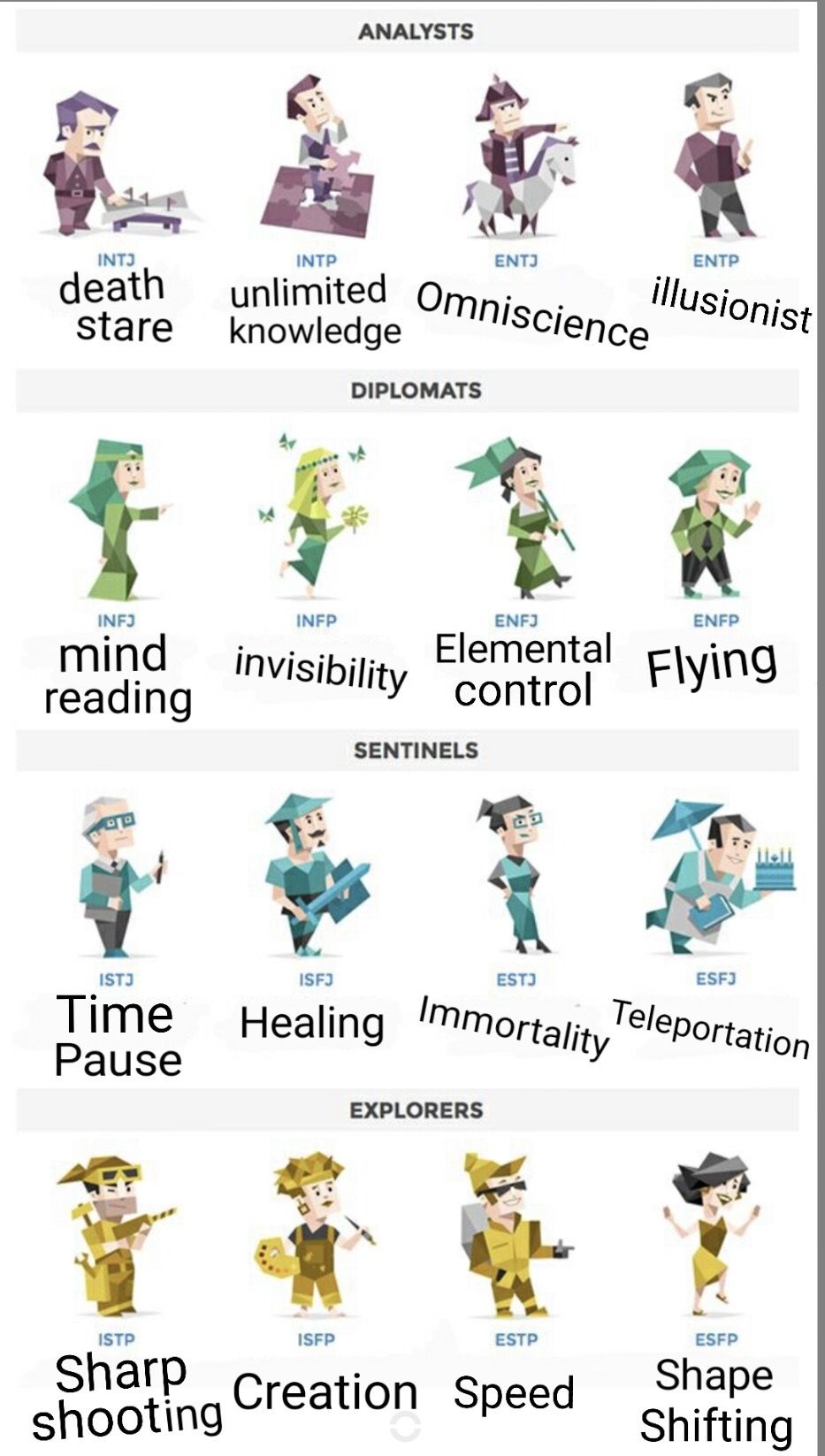 It might be easier for you to fit in with him than for him to change himself0030
It might be easier for you to fit in with him than for him to change himself0030 - Try to give such a person more positive emotions. However, he is a bit of a pessimist.
- They have intuitive caution in making decisions, they always want to determine and understand the maximum of possible options. So their decisions will be different thoughtfulness. After all, they, like real strategists, will first analyze everything and only then present a layout of worthwhile options. The truth is to compose and choose them, overcoming doubt, The smart ones can do it for a long time.
- They prefer thoughtfulness in matters of domestic comfort. They always have a certain working set with them for all occasions. In this, you can always rely on them.
- Possession of high demands on oneself and on the criteria of one's work. He takes any job seriously, whether it's a research paper or helping a friend move, and not just pretending. This has an effective effect on the quality of his work.
- Analytical thinking. You can go to him for optimal solutions for building processes. He will cope with this function effortlessly, noticing logical miscalculations, data inconsistencies and weaknesses of the system. And be sure that he will pay maximum due attention to this issue: he will draw logical conclusions and will act with calm ease.
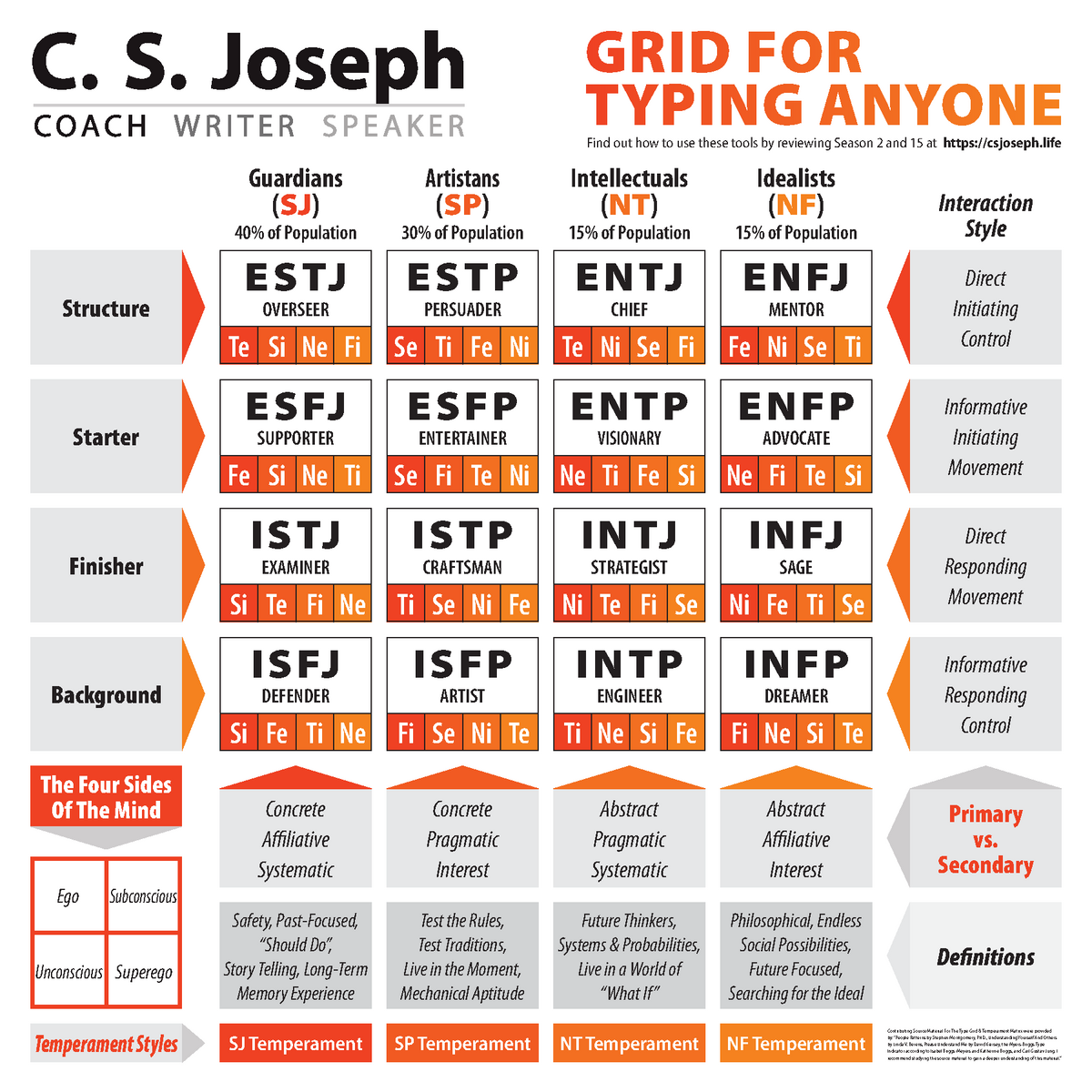
- Creativity. They see a lot of ideas and get insights where an INFP personality type would just pass by. Their desire to learn and seek explanations surprises with enthusiasm and depth.
- terms. Not every field of activity in which he finds himself accepts this.
- Stubbornness and intractability. The option of hearing facts from another is out of his range of perception when the Scientist has every reason to be right. After all, he had already checked everything three, or even four times. This can irritate management. For the same reason, I am ready not to strive to communicate and establish contact.
- Often, honesty does not help to call him the soul of the company. A Smart Scientist, with his special opinion and assessments of others, can slow down the internal process of team building and reduce the interest of a group of colleagues in himself.
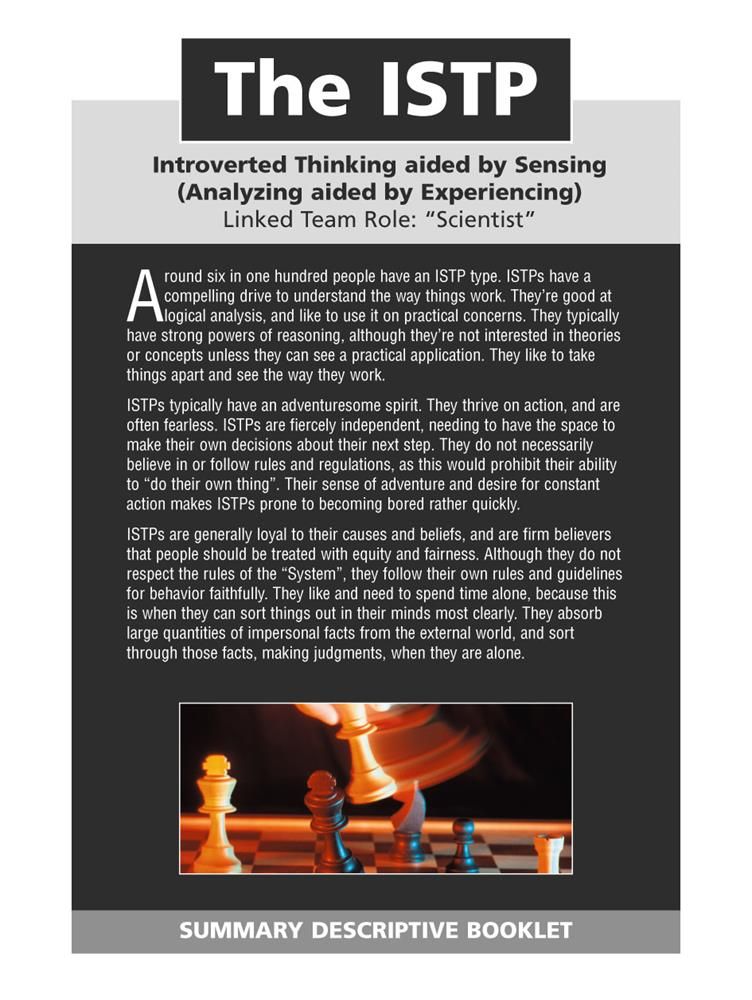
more than
more than
more debates in their own heads, they may appear somewhat pensive and distant. Other people often don't understand them because Innovators don't always pay attention to adequately communicating their ideas. Absorbed by their inner world, they often neglect the external details and the practical side of the issues under study. In small talk, Innovators are reserved and awkward. But when it comes to the exact sciences or solving problems of the scale of the universe, their eloquence is inexhaustible.
Other people often don't understand them because Innovators don't always pay attention to adequately communicating their ideas. Absorbed by their inner world, they often neglect the external details and the practical side of the issues under study. In small talk, Innovators are reserved and awkward. But when it comes to the exact sciences or solving problems of the scale of the universe, their eloquence is inexhaustible.
Innovators like to reason and value intelligence and knowledge. Less intelligent INTPs are looked down upon, and other people sense this well. Innovators will not miss the opportunity to discuss new thoughts and theories with other people, they are able to accurately convey the most complex ideas. But because of their tendency to be logical, it can be difficult for them to refrain from correcting an interlocutor who makes irrational or illogical judgments. Innovators often offend and upset people with their criticism and remarks.
Did you like this description?
Make a maximum benefit of
from the knowledge of your personality code for 16 spheres of life using the Innovator Inter leadership
If you have doubts , , check the type from the link.
| Check type |
What is INTP personality type in socionics with a description of behavioral tactics
How interesting it is to live life in our time, because now people want to know themselves more and more, to develop and work on themselves. To realize all this, you need to deeply study yourself. Determining what type of person you are is one of the initial steps towards this goal.
As C. Jung said, "Judgments about one's own personality are always extremely complex." I think everyone can agree with this.
In this article:
Interpretation of INTP personality typeFeatures of INTP personality typeIf INTP is your personality typeIf INTP is the personality type of your relatives or friendsDescription of INTP personality type (Balzac, Scientist, Critic)
Media news2
Interpretation of INTP personality type
Photo by cottonbro: Pexels
Today we will talk about a rather rare personality type, namely INTP.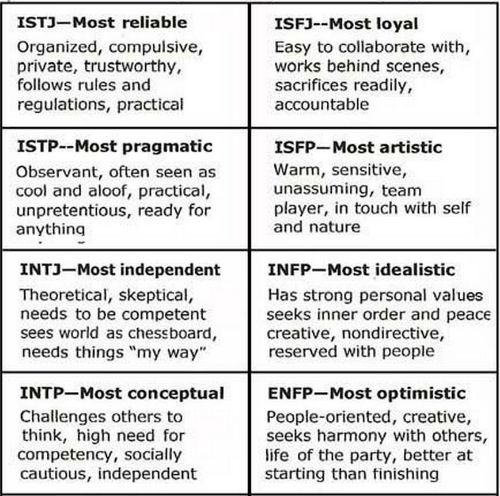 What do these mysterious, but at the same time charming sounding letters mean? It is necessary to analyze each separately:
What do these mysterious, but at the same time charming sounding letters mean? It is necessary to analyze each separately:
I - introversion. In other words, human consciousness is directed to its inner world. It can also be characterized by isolation, a desire to step back. They do not need company, they just love to spend time alone.
N - intuition. This means that it is intuition, premonition that will play a huge role in the events and actions surrounding them.
In other words, such people consider themselves to be such "seers". They absolutely trust what they feel.
T - thinking. But decisions are still made based on logic, carefully considering every detail. They say about such people that they approach the matter with a “cold” head.
P - perception. And all the same in the outside world, representatives of this type of personality act according to circumstances, based on their inner feelings. Pretty easy to adapt to change.
INTP personality type
INTP is one of the rarest personality types.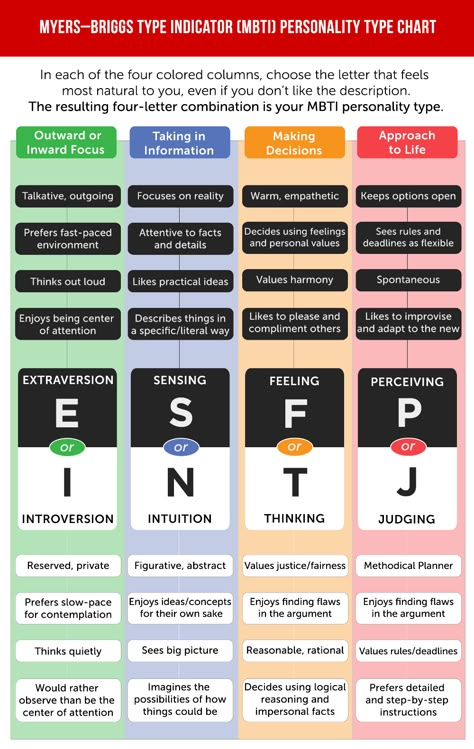 Only 3% of the population of our planet are its owners. The representative of this type is a very interesting, unusual person, gushing with ideas. A factory of ideas, plans, assumptions, proposals and solutions is constantly functioning in his head. This factory almost never stops working. This immersion in one's thoughts, at times, is perceived by others as isolation and detachment.
Only 3% of the population of our planet are its owners. The representative of this type is a very interesting, unusual person, gushing with ideas. A factory of ideas, plans, assumptions, proposals and solutions is constantly functioning in his head. This factory almost never stops working. This immersion in one's thoughts, at times, is perceived by others as isolation and detachment.
Features of INTP personality type
People of this personality type will not support the emotional openness of the interlocutor. Namely, they are unlikely to sympathize and show empathy for the interlocutor. In turn, they are also unlikely to share their emotions. This feature is also not always positively perceived by others, which may affect further interaction.
In response to emotional complaints, INTPs can only give an algorithm of logical actions to eliminate problems. However, a person, sharing his emotions, is unlikely to want to hear specific attitudes, more often this comes only from the need to receive support, which the type of personality we are analyzing cannot give.
But a representative of this psychotype clearly possesses eloquence in a situation of dispute. He simply loves to engage in polemics because he has his own opinion on every situation, the correctness of which he has absolutely no doubt.
Despite some negative aspects of the INTP type, they are incredibly unique, and in some respects even brilliant people. They always have aspirations, they can lead several projects at once, they are well versed in innovation, technology and science. A sort of "scientists", "restless analysts."
If INTP is your personality type
If you are the owner of such an entertaining personality type as INTP, then in order to improve interaction with people around you and with your loved ones, as well as to work out your weaknesses, you can try to follow a few rules:
GiphyIf INTP is the personality type of your relatives or friends
If there is an INTP type person in your environment, for more productive interaction with him, you need:
When a person knows the characteristics of his personality type and the personality type of the people around him, life becomes much easier and more logical. After all, this information helps to seek and build those invisible, but strong threads of interaction with everyone who occupies any part in his life.
INTP personality type description (Balzac, Scientist, Critic)
Scientist is one of the sixteen personality types of people according to MBTI Myers-Briggs, typology of Katherine Briggs and her daughter Isabelle Briggs Myers. An intellectual genius, an intuitive with introverted thinking - this is all about the INTP type (introverted, intuitive, thinking, perceiving). What are these words and letters in abbreviations about? I'll start by saying that, according to socionics, a person of the Scientist type is described as a creative introvert and a source of new unique ideas. Looking at him, it will seem that his energy has no limit. Such people tend to be professors, architects, scientists or philosophers. How else do they manifest themselves in the world?
Looking at him, it will seem that his energy has no limit. Such people tend to be professors, architects, scientists or philosophers. How else do they manifest themselves in the world?
Is it more difficult to love an INTP person or be friends with him?
Pessimistic to the point of cynicism, but at the same time highly vulnerable, Scientists can avoid overly emotional contact. They tend to believe that the manifestation of negative emotions of friends and relatives is their big disadvantage, since they themselves are not capable of such an attitude. Also, interference in life and relationships can create several more characteristic features inherent in Scientists.
Tendency towards the principle of the primacy of precise analysis
Scientists tend to rely on facts and logic. This love of objectivity as the main goal and task is good at work. In relationships, this ability can often create conflict. In family, relationships and other social contacts, he will endlessly justify the rules and believe that he is trying to explain, bestow and share, and not reveal tediousness and a desire to overload with excess.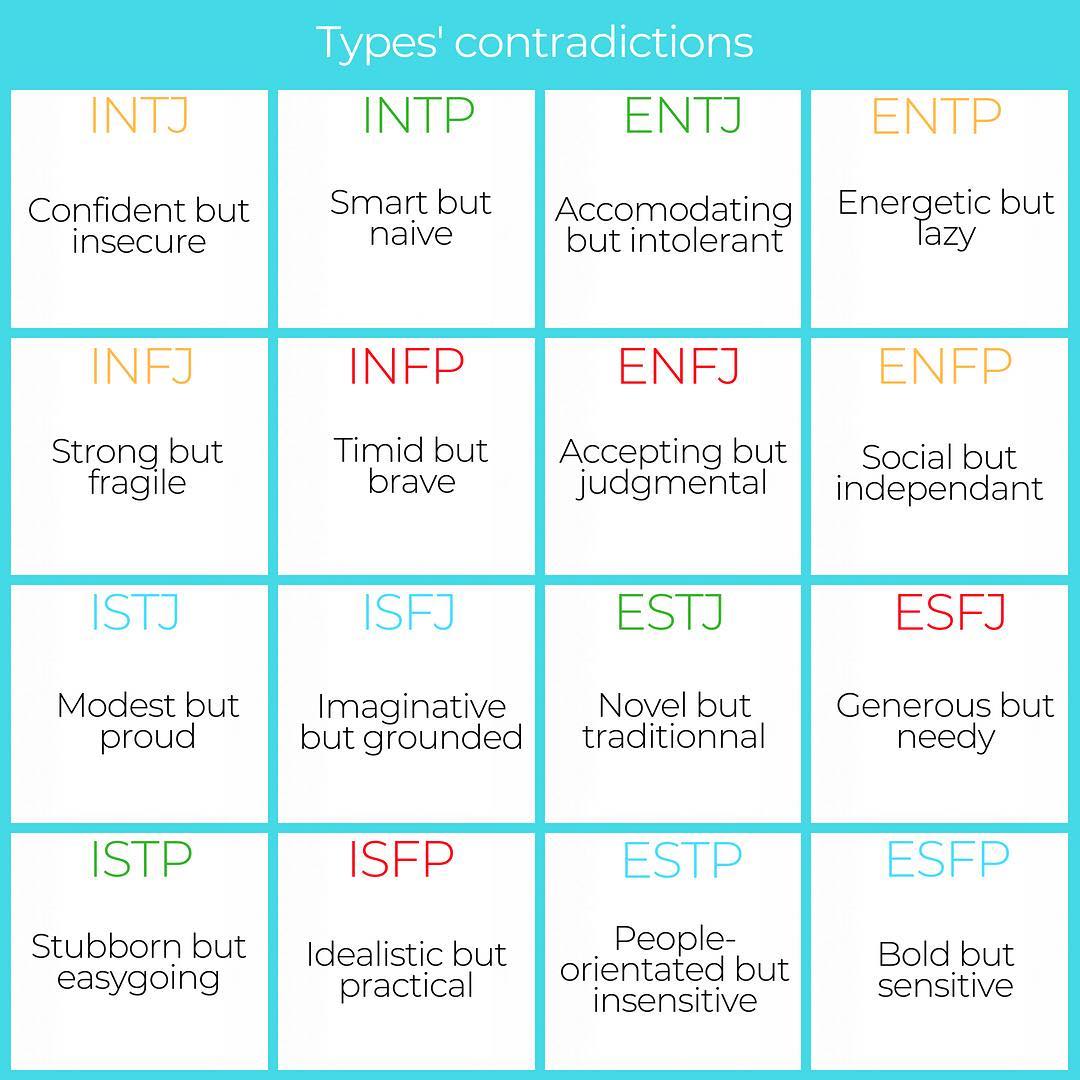
The philosophical loneliness of the mind, in which they need to immerse themselves
Deep immersion in oneself and one's important thoughts is, according to the Scientist, a reason to be proud of oneself. However, it is difficult for their partners to share these positive emotions, because it makes you lose your temper a little when your loved one hovers in thought among his ideas most of the time together. While his mind tends to decide and consider key roles and models, such introversion greatly reduces success in communication, making it quite stressful. And, as a partner, you do not feel very good about it.
Endless criticism, necessary and not very necessary
The main scourge of Scientists is the habit of criticizing. Oh, how difficult it is for them in a dispute not to point out to the interlocutor the logical inconsistencies of his reasoning and concept! But sometimes one word is enough to easily offend a person. So this feature rarely works to build relationships in harmony and compatibility.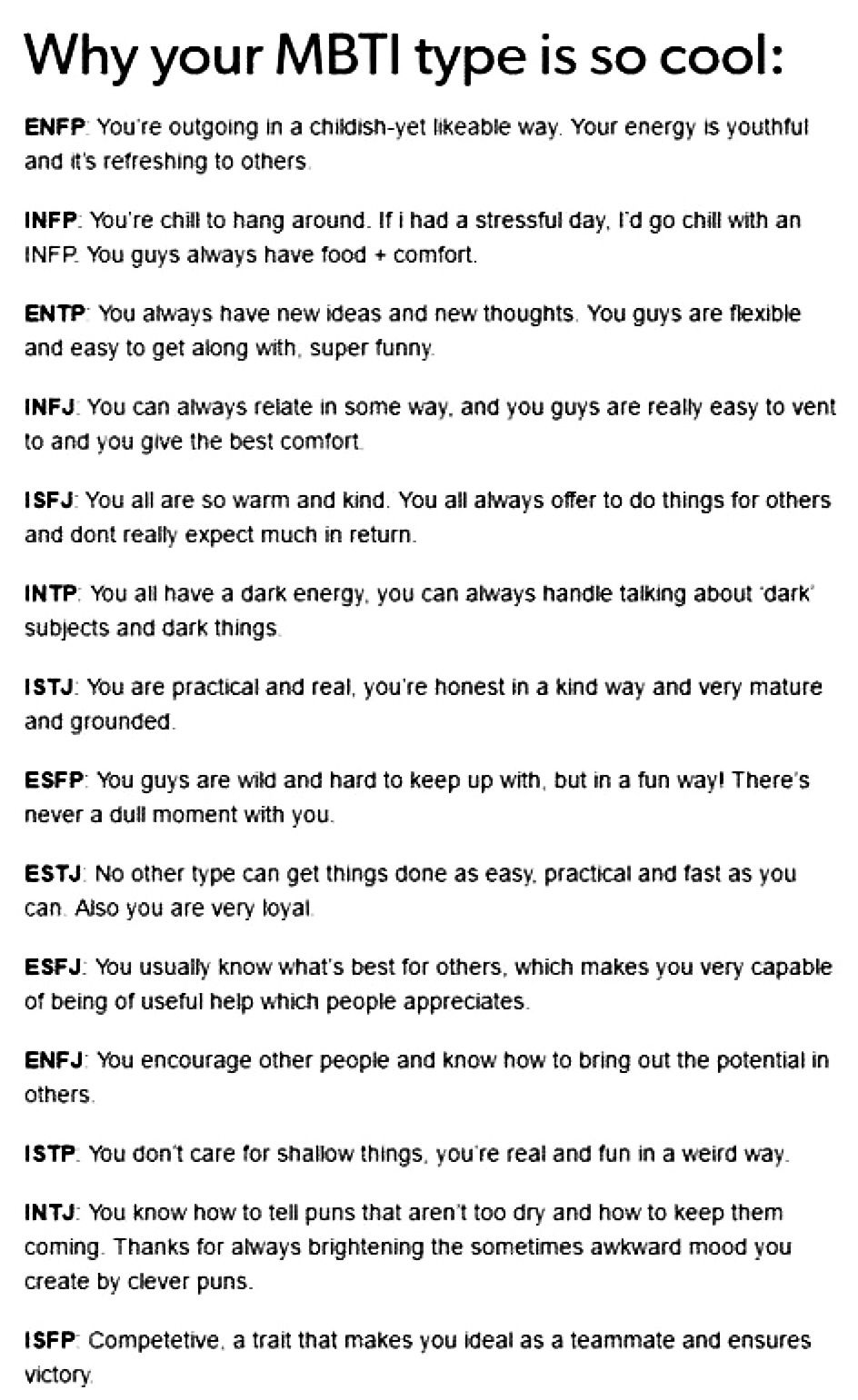 Rather, it creates problems, difficulties and severe discomfort in communication.
Rather, it creates problems, difficulties and severe discomfort in communication.
Personal qualities and behavior worth appreciating
In people with the INTP personality type, it is possible to single out not only some disadvantages, but also advantages. Socionics tends to describe people of the Scientist sociotype as follows:
According to statistics in percentage, in the world only 2% of women and 5% of men from the total population with this type of personality.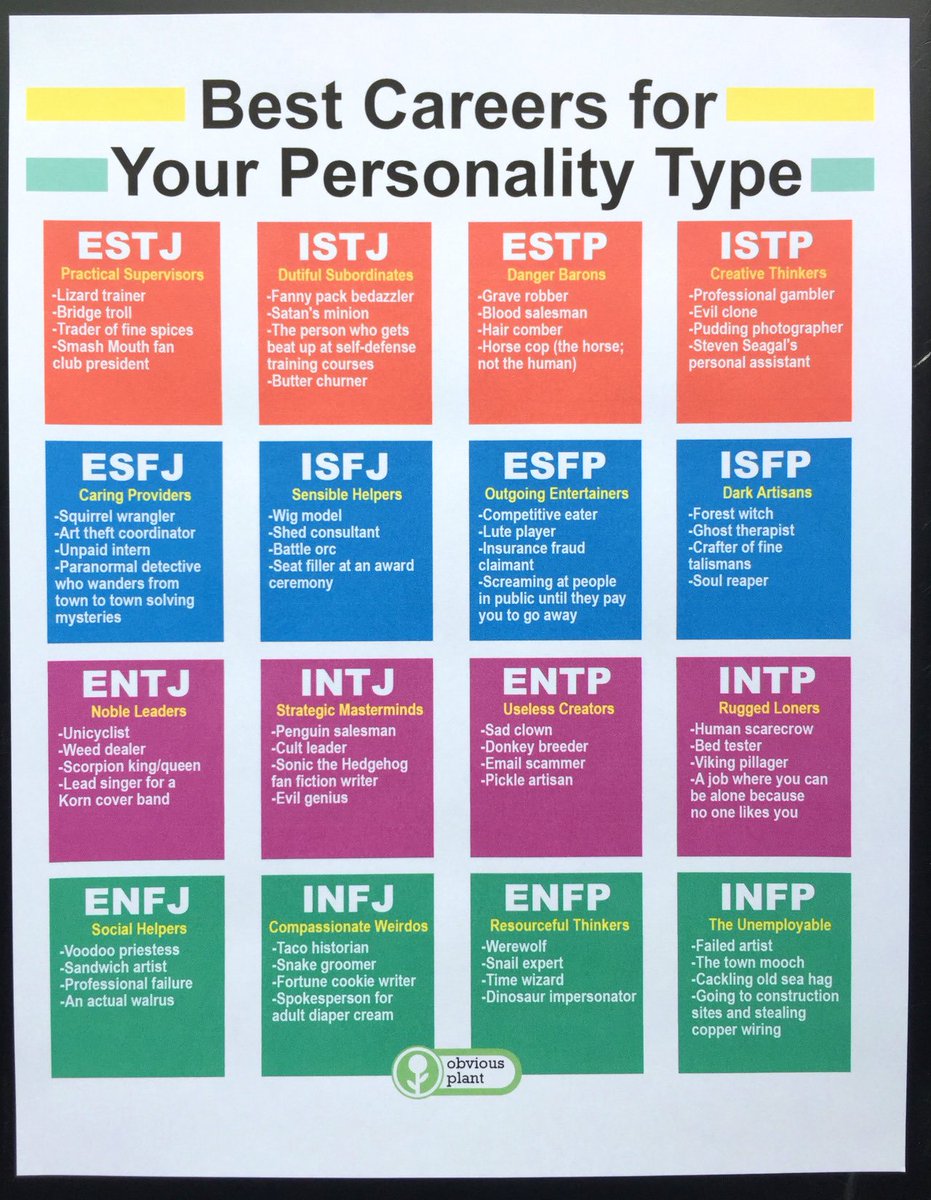 The math is simple: if you intuitively think that INTP is your personality type, just in case, look at the descriptions of others, such as INTJ, ENTJ, INFJ or ENFP. Or, take a test to determine the type that will match your personality and find out your result. Taking the test is an exciting activity, the benefits of which may interest you. The main thing is not to take the tests and the knowledge gained too seriously. Sometimes this is just an abstract way to trace the patterns and correspondences of known concepts.
The math is simple: if you intuitively think that INTP is your personality type, just in case, look at the descriptions of others, such as INTJ, ENTJ, INFJ or ENFP. Or, take a test to determine the type that will match your personality and find out your result. Taking the test is an exciting activity, the benefits of which may interest you. The main thing is not to take the tests and the knowledge gained too seriously. Sometimes this is just an abstract way to trace the patterns and correspondences of known concepts.
What kind of parents are obtained from people of the personality type INTP
Passing only the first stages of parenthood, Scientists already understand: the upbringing of children in practice is far from theories and classifications. A high degree of spontaneously occurring events, especially in the first year of parenthood, as well as a large number of different childhood emotions, confuses Scientists and is perceived by them rather difficult. However, this discrepancy is a value for their experience.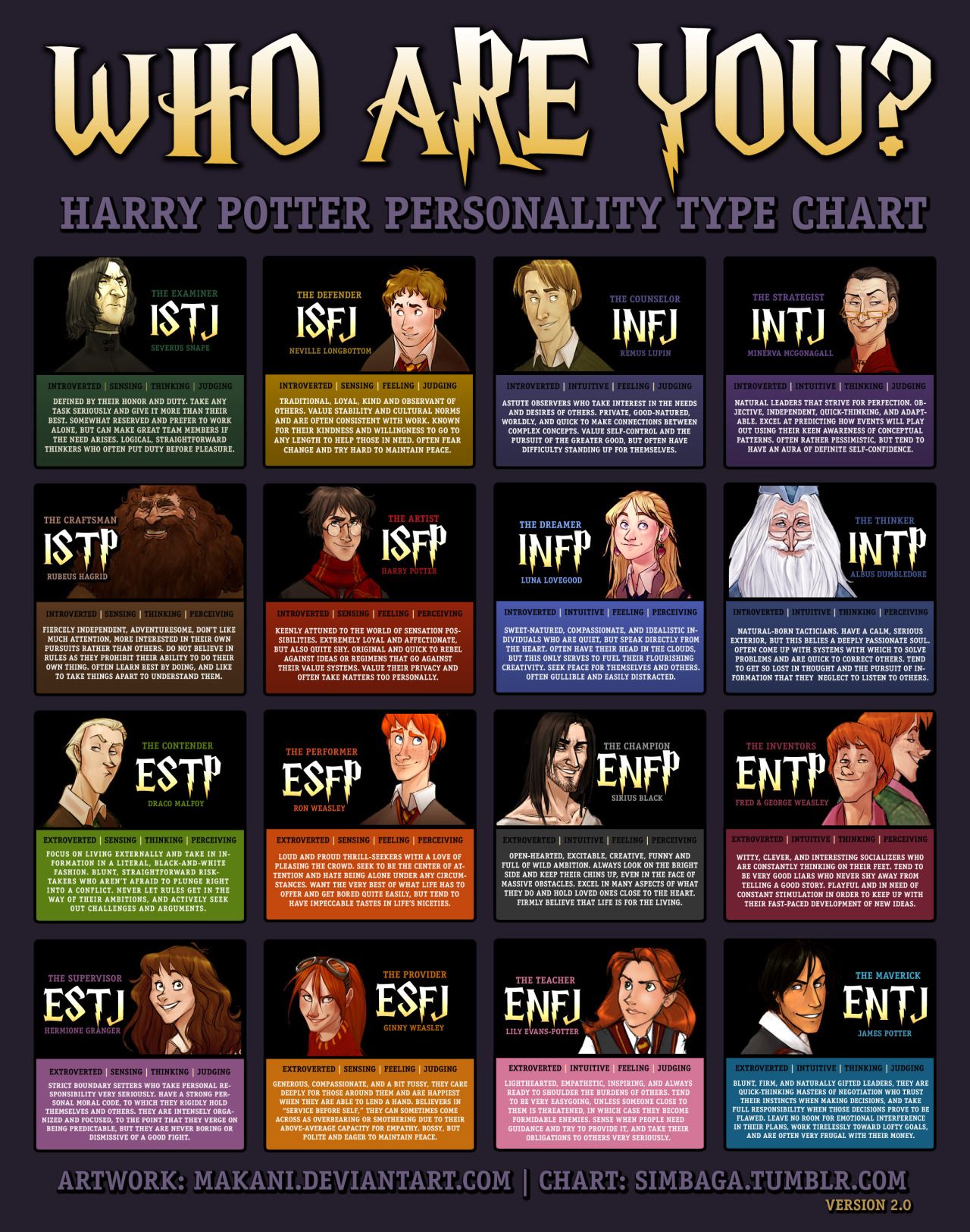 As a result, in the game they more or less learn to define and build boundaries, a system of emotional support in the family, to learn and learn a lot of new and interesting things. They are driven by natural curiosity and love for cognitive research.
As a result, in the game they more or less learn to define and build boundaries, a system of emotional support in the family, to learn and learn a lot of new and interesting things. They are driven by natural curiosity and love for cognitive research.
Reflections on their good and bad traits at work
It is clear that both in the family and at work people are able to express themselves from different sides. Let's take a look at what traits of the Scientist personality type an employer needs?
However, if you hire a representative of the Scientist personality type, then be prepared for some difficulties and contradictions:




